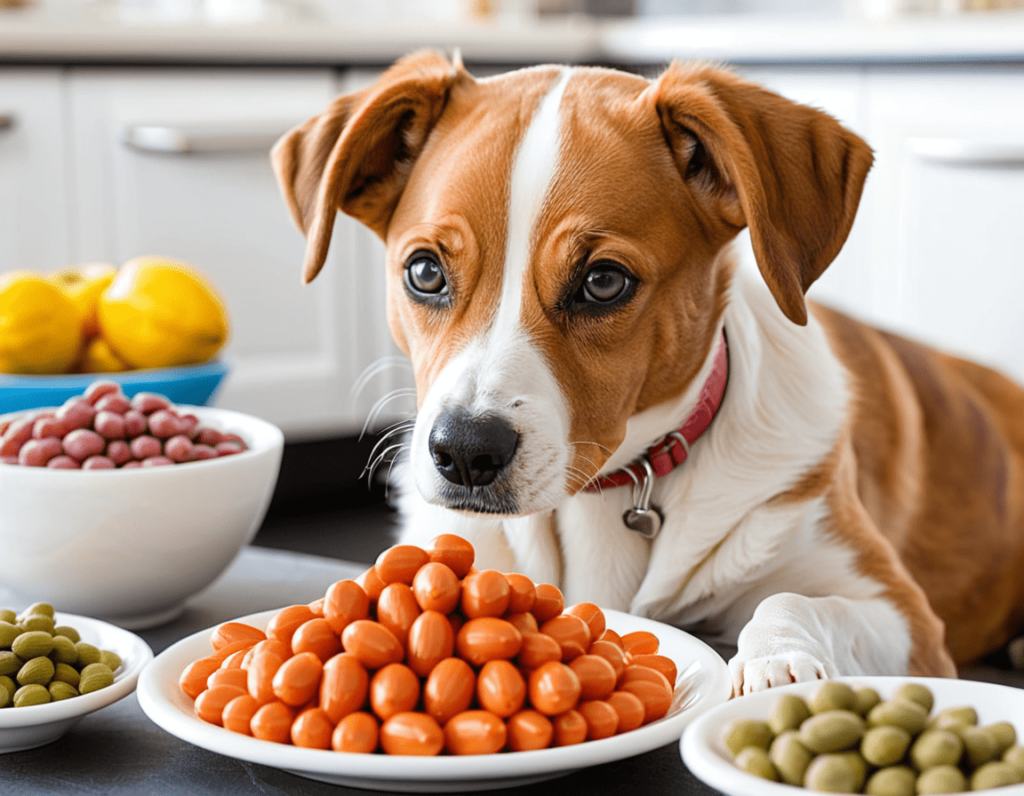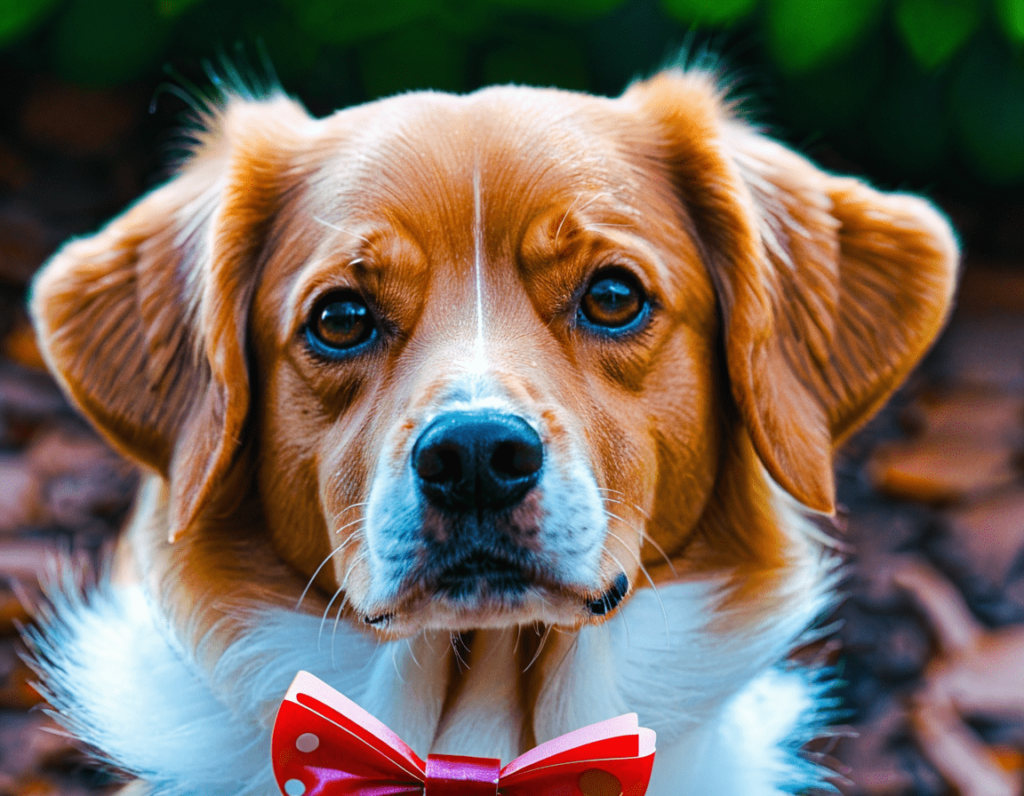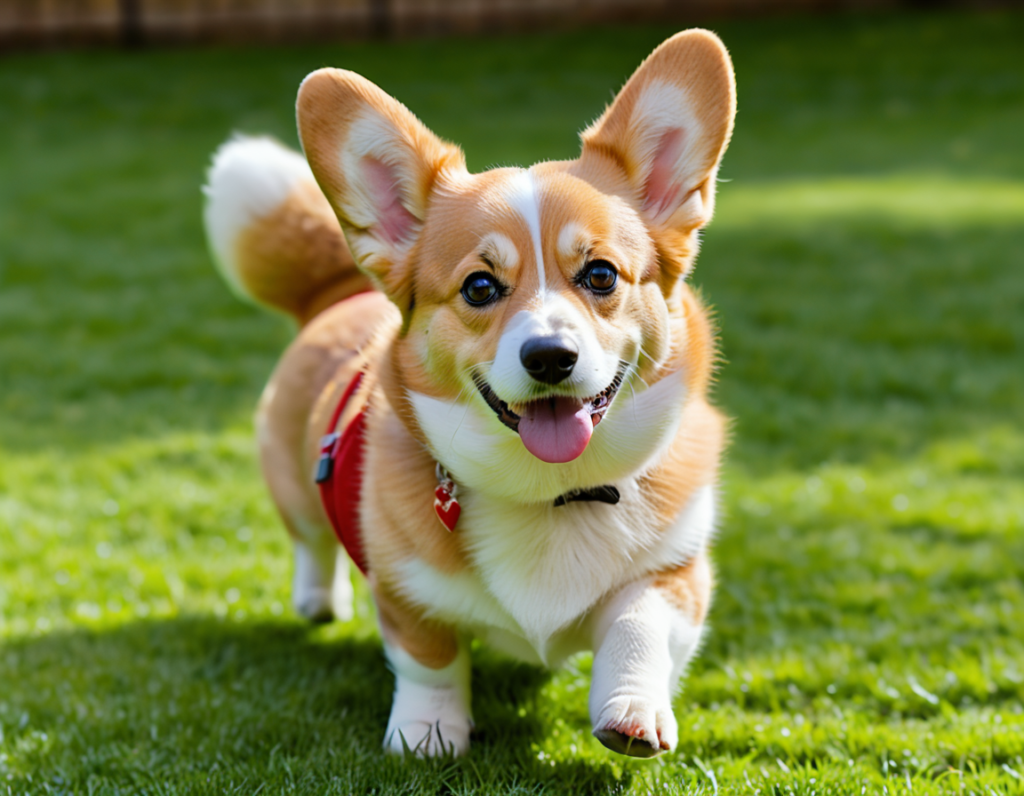
Choosing the Right Dog Breeds
If you’ve ever spent hours scrolling through photos of cute puppies, you know that not all dog breeds are created equal. Dogs are like snowflakes; each one is unique, full of personality, and sometimes a bit strange! Whether you’re looking for a family-friendly pup, a high-energy jogging buddy, or a snuggly Netflix partner, there’s a dog breed out there for you.
Let’s dive into some popular dog breeds, their characteristics, and why they might be the perfect fit for your life
When it comes to dogs, the Labrador Retriever reigns supreme. Known for their boundless energy, heartwarming loyalty, and the uncanny ability to turn a boring day into a fun adventure, Labs are a favourite for a reason. Whether you’re looking for a running buddy, a cuddle companion, or a food thief who can sniff out snacks from miles away, this breed checks all the boxes.
1. Labrador Retriever: The Ultimate Family Buddy 🐾
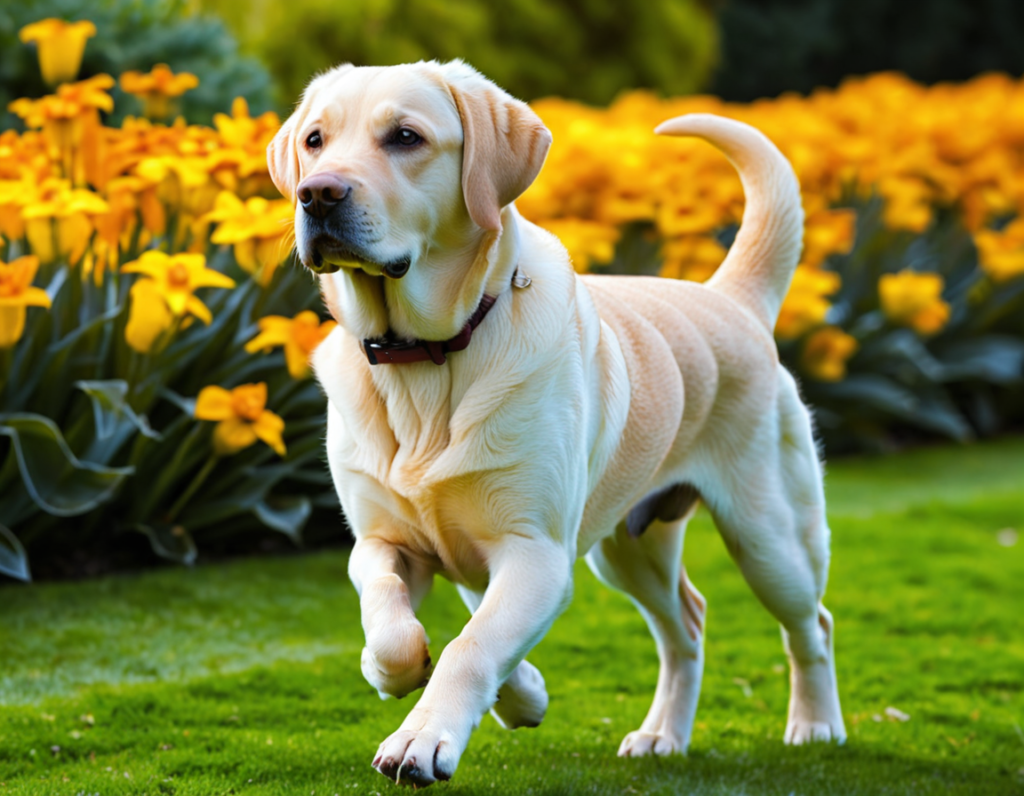
Labrador Retrievers are like that one friend who’s down for anything: playing fetch, hiking, chilling, you name it! Labs are among the most popular dog breeds in the world, known for their friendly nature, loyalty, and intelligence. They’re great with kids and other animals, making them ideal for families. Just be prepared to exercise them a lot—they’re not couch potatoes (at least until they’re exhausted).
Fun Fact: Labs love water. If you’re thinking of taking a Labrador for a swim, you’re about to make their day!
The Labrador Look: A Picture of Adorability
Let’s be real—Labradors are the canine version of a teddy bear, but with a wagging tail. Available in three classic colors—yellow, black, and chocolate—these dogs are the definition of versatility. Need a family dog? Check. A working dog? Check. A professional puddle-jumper? Check again.
Their soulful eyes seem to hold the secrets of the universe, and their ever-wagging tails can double as a coffee-table-clearing machine. So, if you value your vases, you’ve been warned.
The Personality Jackpot
Labs are famously friendly and sociable. In fact, they might be the only dogs on Earth who consider burglars as potential best friends. Their eagerness to please makes them easy to train, but beware: this breed has an independent streak that might surface when they spot a squirrel or smell a barbecue.
Got kids? Perfect. Labrador Retrievers are like big, furry babysitters (minus the diaper-changing skills). They’re patient, playful, and will happily partake in endless games of fetch—just don’t be surprised when they decide the ball belongs to them permanently.
Lab Life: What to Expect
Labradors love two things above all else: food and fun. If you leave snacks unattended, consider them gone. Their insatiable appetite means you’ll need to keep an eye on portion sizes to avoid turning your fit pup into a furry loaf of bread.
Exercise is non-negotiable with Labs. These dogs are like furry tornadoes if they don’t get their daily dose of activity. Long walks, games of fetch, or even a splash in the local lake will keep their spirits high and your furniture intact.
Health and Happiness
Labs are generally healthy dogs, but they’re not invincible. Common issues include hip dysplasia, obesity (surprise, surprise), and ear infections. Regular vet checkups, a balanced diet, and plenty of exercise can keep your lab happy and healthy.
And don’t forget about their ears! Those floppy masterpieces can trap moisture and dirt, so regular cleaning is a must.
Fun Facts About Labrador Retrievers
- Born Swimmers: Labs have webbed feet, making them natural-born Michael Phelpses of the dog world.
- Hollywood Stars: Ever notice how many movies feature Labrador Retrievers? From “Marley & Me” to “Homeward Bound,” these pups are natural scene stealers.
- World’s Best Therapy Dogs: Their gentle nature makes them perfect for therapy and service work. Plus, their hugs are priceless.
A Lab for Every Lifestyle
- Whether you’re an outdoorsy adventurer or a cozy homebody, Labs adapt easily. Just remember: a tired Lab is a happy Lab. Give them love, a comfy spot to nap, and a steady supply of belly rubs, and you’ll have a loyal companion for life.
Final Woof
Labrador Retrievers are more than just pets; they’re family. Their goofy antics, undying loyalty, and heartwarming affection make them the ultimate dogs for any household. So, if you’re ready for a life full of wagging tails, wet noses, and the occasional shoe theft, a Labrador might just be your perfect match.
2. German Shepherd: The Noble Protector 🛡️
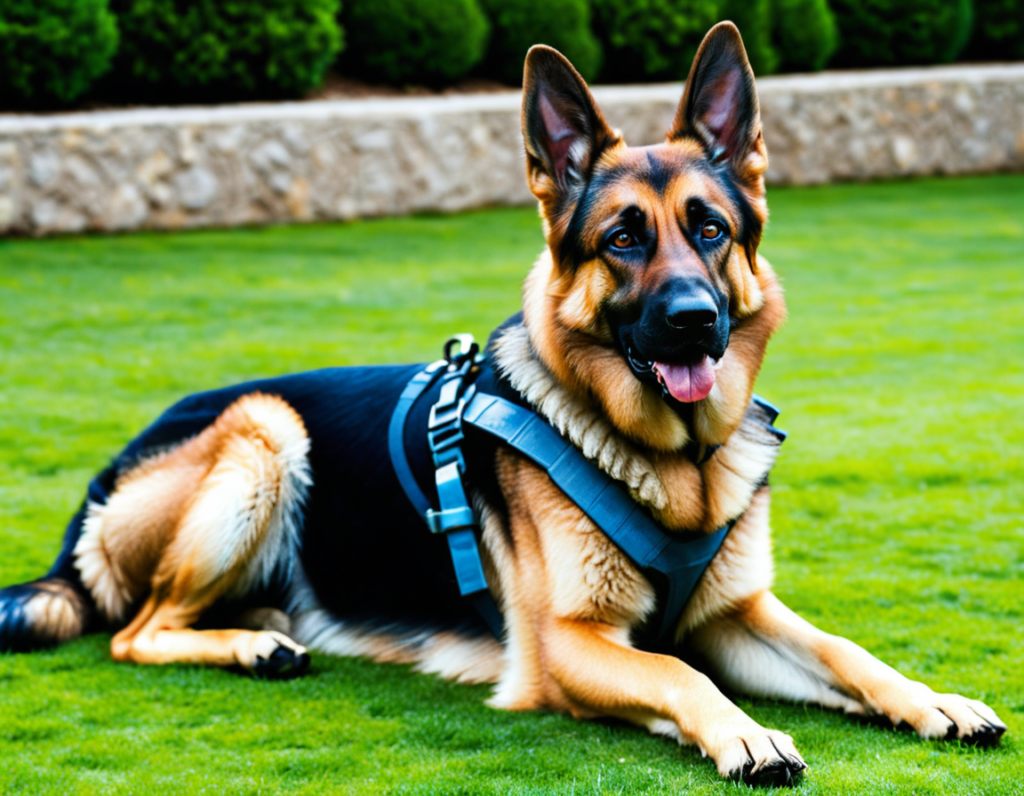
German Shepherds are the superheroes of the dog world. Known for their loyalty, intelligence, and courage, these dogs are often found working alongside police and military forces.
But they’re also lovable goofballs with their families. If you’re looking for a dog that’ll protect your home and bring you endless entertainment, a German Shepherd might be the perfect match.
Just remember, they need mental stimulation and training to stay happy and avoid turning your living room into their personal obstacle course.
The German Shepherd isn’t just a dog—it’s a legend. Known for their loyalty, intelligence, and unmatched courage, these dogs are the ultimate companions. Whether they’re starring in action movies, helping law enforcement, or simply guarding your backyard from the neighbour’s cat, German Shepherds take their roles seriously. But don’t be fooled—they also have a soft side that’ll melt your heart faster than a pup can devour a treat.
Fun Fact: A German Shepherd’s love for their family is unmatched—once they know you’re “their person,” they’ve got your back for life!
The Look of a Hero
German Shepherds have a commanding presence. Their strong, athletic build and alert stance make them look like they’re always ready to save the day. And those ears? Always standing at attention like they’re eavesdropping on a secret mission.
Available in classic black-and-tan, sable, or even all-black coats, these dogs are as striking as they are functional. Their fur is like a fashion statement, though you’ll probably find it on your furniture, clothes, and… well, everywhere else. (Pro tip: invest in a good vacuum.)
Brains and Beauty
Behind their handsome appearance is a brain that could rival Einstein’s—if Einstein liked chasing tennis balls. German Shepherds are among the smartest dog breeds, which is why they excel in roles like police work, search-and-rescue, and being the ultimate family protector.
Training a German Shepherd is both a joy and a challenge. They’ll master commands in no time, but their intelligence means they can outsmart you if you’re not careful. Think you’re in charge? Guess again—they’ve been planning this game of fetch since breakfast.
A Heart Full of Loyalty
German Shepherds are the poster dogs for loyalty. Once you earn their trust (which isn’t hard if you have treats), they’ll stick to you like Velcro. These dogs thrive on forming strong bonds with their families and will go to great lengths to keep you safe.
But don’t mistake their protective instincts for aggression. German Shepherds are gentle giants when it comes to their loved ones, especially kids. They’ll happily join in on backyard games or keep watch during movie night—just don’t expect them to share the popcorn.
Exercise: Their Daily Dose of Happiness
If there’s one thing a German Shepherd can’t stand, it’s boredom. These dogs are energetic and need plenty of exercise to stay happy and healthy. Long walks, fetch marathons, or agility training will keep their minds sharp and their tails wagging.
Without enough activity, they might channel their energy into redecorating your living room (chewing edition). So, if you’re a couch potato, consider adopting a goldfish instead.
Health and Care
German Shepherds are generally robust dogs, but they’re not invincible. Common health issues include hip dysplasia, elbow dysplasia, and allergies. Regular vet visits, a balanced diet, and proper exercise can help them live their best lives.
And let’s talk grooming. German Shepherds shed—A LOT. Think of it as a free fur coating for your home. Brushing them a few times a week can minimize the fur explosion, though your lint roller will still be your best friend.
Fun Facts About German Shepherds
- Movie Stars: Ever heard of Rin Tin Tin? This famous German Shepherd was a Hollywood sensation in the 1920s.
- War Heroes: German Shepherds served in both World Wars, earning medals and the respect of soldiers everywhere.
- Language Learners: These dogs can learn commands in multiple languages. Guten Tag, Fido!
Are You Ready for a German Shepherd?
Adopting a German Shepherd is like welcoming a furry guardian angel into your life. They’ll protect you, entertain you, and occasionally drive you a little crazy. But every moment is worth it.
If you’re looking for a dog that’s as smart as they are loving and as loyal as they are energetic, the German Shepherd is your perfect match. Just be prepared for their intense love—and their endless shedding.
3. Golden Retriever: The Friendliest of Them All 🌞
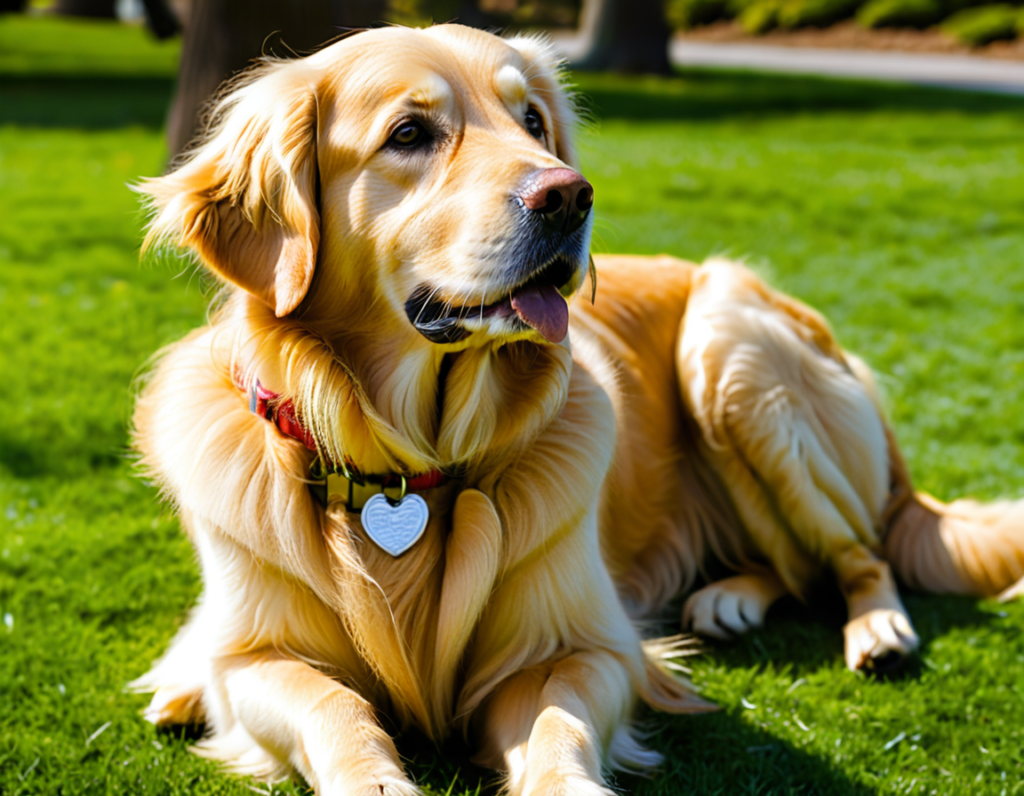
Golden Retrievers are the happiest, friendliest dogs around. They seem to believe everyone they meet is a potential new friend, whether it’s a human, cat, or bird. They’re great for families with kids and are known for their gentle, loving nature. Be warned, though—these golden furballs shed a lot! If you can handle the shedding and the occasional mud bath, a Golden Retriever will give you endless love in return.
If dogs were running for the title of “Everyone’s Best Friend,” the Golden Retriever would win by a landslide. This breed is the canine version of sunshine—warm, bright, and always ready to light up your day. Known for their playful spirit and boundless love, Golden Retrievers are like that one friend who’s always happy to see you, even if you’re five minutes late and forgot the snacks.
Whether they’re greeting you at the door, playing fetch, or attempting to sit in your lap (all 70 pounds of them), Golden Retrievers are all about spreading joy. But let’s dive deeper into what makes these golden beauties so irresistible.
Fun Fact: Golden Retrievers have a perpetual “smile” that can melt anyone’s heart—probably why they’re the stars of so many TV shows and movies!
Looks That Melt Hearts
Golden Retrievers are drop-dead gorgeous. With their luscious, flowing coats and soulful eyes, they’re basically the Brad Pitts of the dog world. Their fur ranges from light cream to deep golden, and it’s as soft as a cloud… assuming you’ve kept up with the brushing.
Speaking of brushing, prepare yourself. Golden Retrievers shed—a lot. Your black leggings will thank you for choosing another color. But honestly, when you’re looking into those big, loving eyes, who cares about a little extra vacuuming?
Brains and Brawn
Golden Retrievers aren’t just pretty faces; they’re smart cookies, too. These dogs are quick learners, which is why you’ll often see them working as service dogs, therapy companions, or even search-and-rescue heroes. Training a Golden Retriever is a breeze—just keep treats on hand, and you’ll have a straight-A student in no time.
But don’t let their intelligence fool you into thinking they’re always serious. Golden Retrievers have a goofy side that’ll leave you in stitches. Whether they’re chasing their tails or trying (and failing) to fit under the coffee table, they’re natural comedians.
A Heart as Golden as Their Coat
Golden Retrievers are the epitome of love and loyalty. They’re great with kids, strangers, and even the mailman (though your shoes might still get the occasional nibble). Their friendly nature makes them terrible guard dogs, but they’re unmatched as family companions.
Got kids? Great! Goldens are patient, gentle, and always up for a game of tag or tug-of-war. Got other pets? No problem. They’re like Switzerland—neutral and ready to be friends with everyone.
Exercise: Keeping the Energy Flowing
Golden Retrievers are bundles of energy wrapped in golden fur. They need regular exercise to stay happy and healthy. Long walks, a game of fetch, or a swim in the lake (yes, they LOVE water) will keep their tails wagging.
Without enough activity, a bored Golden might decide to “help” you redecorate—usually by chewing up your shoes or turning your garden into a digging site. So, keep them busy and give them plenty of love, and you’ll have a happy pup on your hands.
Fun Facts About Golden Retrievers
- Movie Stars: Remember Air Bud? Yep, that slam-dunking dog was a Golden Retriever.
- Water Babies: Golden Retrievers have water-repellent coats and webbed feet, making them excellent swimmers.
- Big Eaters: These dogs love food. If you leave a sandwich unattended, consider it gone.
Is a Golden Retriever Right for You?
If you’re looking for a dog that combines beauty, brains, and an endless capacity for love, a Golden Retriever is your perfect match. They’ll brighten your days, keep you active, and make you laugh with their silly antics.
But remember, they’re not just pets—they’re family. So, if you’re ready for fur-covered furniture, daily walks, and a lifetime of tail-wagging joy, the Golden Retriever might just be the friend you’ve been looking for.
4. Poodle: The Brainiac with Style 🎩
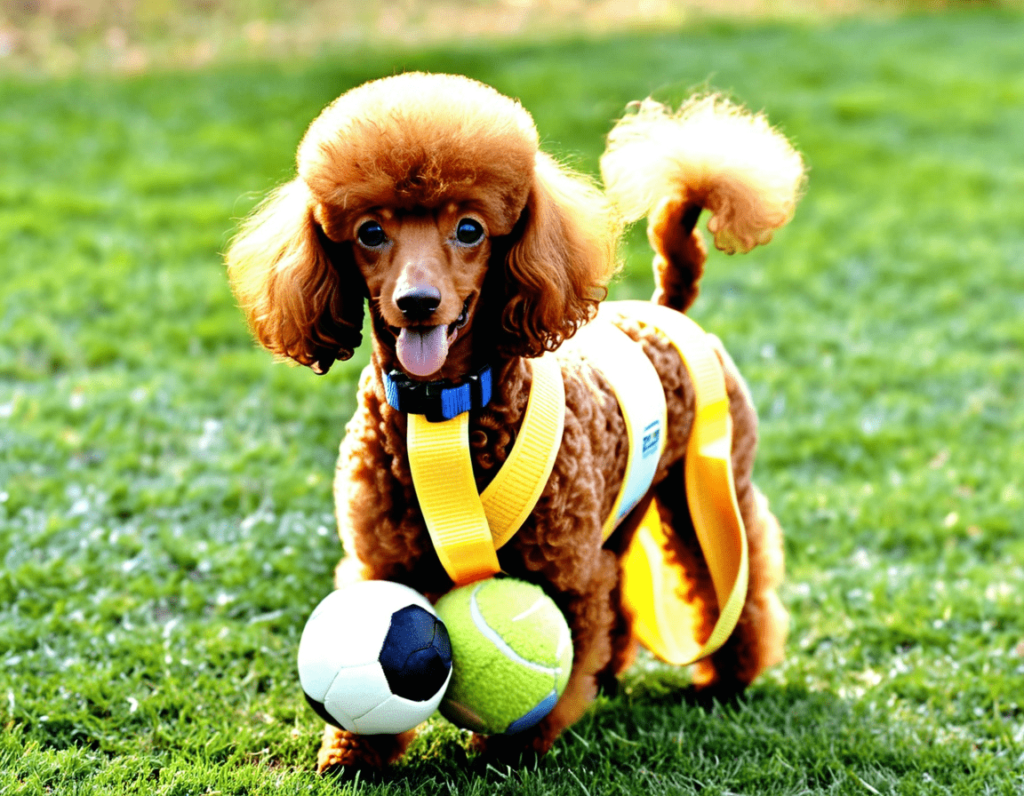
Poodles aren’t just pretty faces; they’re incredibly smart too! Poodles come in different sizes (toy, miniature, and standard), and they’re hypoallergenic, which is great for people with allergies. These dogs love to learn tricks and thrive on attention. If you’re looking for a stylish, intelligent companion who’s a bit of a show-off, the Poodle is for you.
Move over, Einstein. The Poodle has entered the chat, and it’s doing so with a fabulous haircut and a whole lot of attitude. Often recognized as the fashionista of the dog world, Poodles are more than their chic curls—they’re some of the smartest pups you’ll ever meet.
But don’t let their fancy looks fool you. Under the perfectly groomed exterior lies a dog with a sense of humour, a playful spirit, and the kind of intelligence that’ll leave you wondering, Who’s really in charge here?
Let’s dive into why Poodles are the total package: brains, beauty, and a sprinkle of sass.
Fun Fact: Poodles can be fashion icons! With their unique coat, they’re often seen in creative grooming styles, and they wear it with confidence.
Three Sizes, One Big Personality
Poodles come in three sizes: Standard, Miniature, and Toy. Think of it as “small, medium, and large” but with extra fabulousness.
- Standard Poodles are elegant athletes, perfect for families with space to roam.
- Miniature Poodles are pocket-sized bundles of energy, great for smaller homes.
- Toy Poodles? They’re basically the canine equivalent of a purse-sized celebrity.
Regardless of size, all Poodles share the same sharp wit and lively temperament.
The Einstein of Dogs
If there were a canine IQ test, Poodles would ace it. These dogs are incredibly smart and love to learn, which makes training a breeze. Need your dog to sit, stay, or fetch your slippers? A Poodle will do it faster than you can say “treat.”
But beware: their intelligence comes with a mischievous streak. Leave a Poodle unsupervised, and they might just figure out how to open the snack cabinet. Or, if they’re feeling particularly cheeky, they might rearrange the couch pillows just because they can.
Stylish and Functional
Poodles’ curly coats aren’t just for show—they’re practical, too! Their fur is hypoallergenic (great for allergy sufferers) and water-resistant, which makes them excellent swimmers.
However, maintaining that glamorous look takes work. Regular grooming is a must unless you’re cool with your Poodle looking like a fluffy tumbleweed. But hey, even when they’re a bit scruffy, they still manage to look cute.
Pro tip: The classic “Poodle cut” isn’t just about aesthetics—it originated as a way to keep them warm in the water while leaving their joints free for movement. Functional and fashionable? Iconic.
A Family Favorite
Poodles are people pleasers, plain and simple. They thrive on companionship and are great with kids, adults, and even the occasional cat. Their gentle, affectionate nature makes them wonderful therapy dogs, too.
They’re also surprisingly playful. Whether it’s a game of fetch, hide-and-seek, or just chasing their own tail (yes, even Poodles have their silly moments), they love to have fun.
Exercise? Oui, Oui!
Poodles are energetic and need daily exercise to stay happy and healthy. A brisk walk, a romp in the yard, or a swim will keep their tails wagging.
Without enough activity, though, a bored Poodle might channel its energy into redecorating—usually involving your shoes or the nearest roll of toilet paper. So, keep them busy and entertained.
Health and Happiness
While Poodles are generally healthy, they’re prone to certain conditions like hip dysplasia, eye problems, and epilepsy. Regular vet check-ups and a balanced diet can help them live long, happy lives (they often reach 12–15 years or more).
And yes, they’re prone to a little diva behavior, like being picky eaters. But hey, wouldn’t you be if you looked this good?
Fun Facts About Poodles
- French Connection? Poodles are often associated with France, but they actually originated in Germany as duck-hunting dogs. (Oui, oui to that plot twist!)
- Circus Stars: Their intelligence and agility once made them popular performers in circuses.
- Name Game: The word “Poodle” comes from the German word “Pudel,” meaning “to splash.”
Is a Poodle Right for You?
If you’re looking for a dog that’s smart, stylish, and a little bit sassy, the Poodle might just be your soulmate. They’re great for families, singles, and anyone who appreciates a pet with personality.
But be prepared—they’ll outsmart you at least once, charm your friends, and demand regular spa days (aka grooming appointments). In return, you’ll get a loyal, loving companion who’s as sharp as they are stunning.
5. Bulldog: The Lovable Couch Potato 🛋️
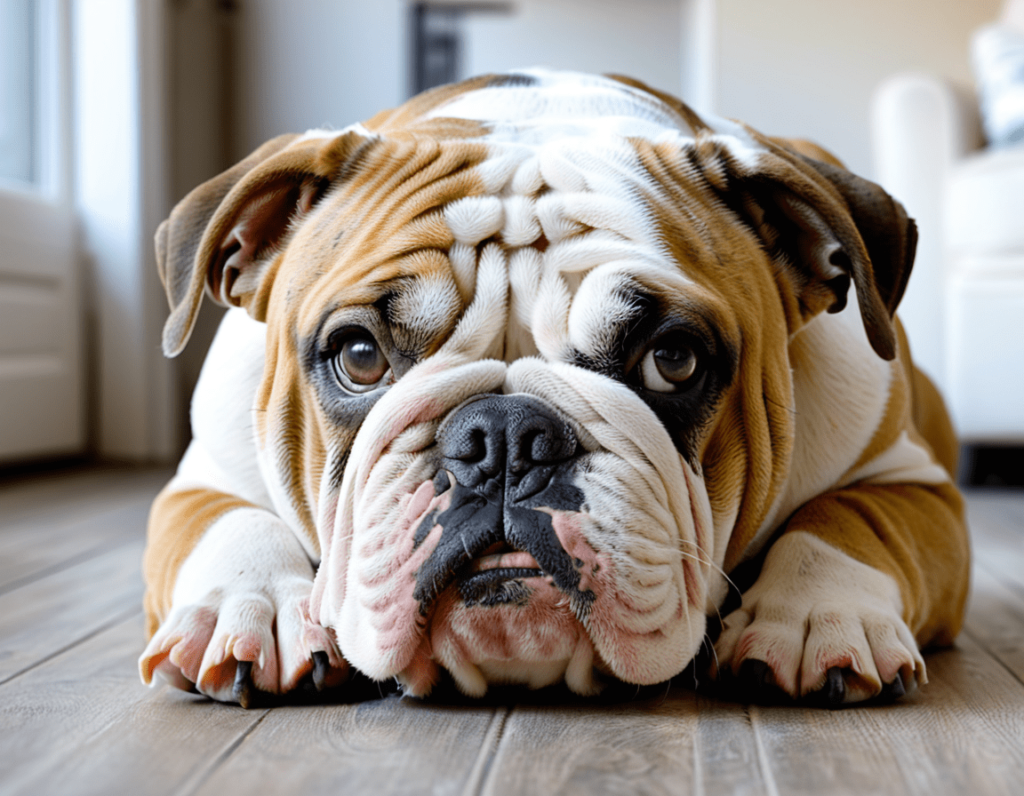
Bulldogs are as relaxed as they come. With their wrinkly faces, big personalities, and low-energy vibes, Bulldogs make for great apartment dogs. They’re known for being loyal and friendly, though they might not be your ideal jogging partner. Bulldogs are here for a good time—not a long time in terms of exercise. Expect them to be your nap buddy instead!
When you think of Bulldogs, you might imagine a stocky little fellow lounging on a couch, giving you the ultimate “You gonna eat that?” look. And honestly, you wouldn’t be wrong. Bulldogs have perfected the art of relaxation and stolen hearts with their adorably wrinkled faces and waddle-like walks.
Despite their tough exterior, Bulldogs are big softies on the inside. They’re loyal, loving, and would much rather nap than run a marathon. So, let’s dive into what makes these dogs the ultimate lovable couch potatoes.
Fun Fact: Bulldogs snore… loudly. So if you’re a light sleeper, you might want to consider earplugs!
A Face Only Everyone Can Love
Let’s address the (adorable) elephant in the room: that smooshed face. Bulldogs’ distinct appearance is their trademark, and those droopy eyes and signature underbite can melt even the coldest of hearts.
Sure, their snoring might rival a chainsaw, but hey, it’s part of their charm. If you’re looking for a quiet dog, a Bulldog might not be for you. But if you can handle the occasional snore-fest, you’re in for a lifetime of love and laughs.
Short Walks, Long Naps
If you’re a fan of vigorous hiking and high-energy activities, Bulldogs might suggest you reconsider… without getting off the couch. These pups prefer short walks followed by long snoozes, ideally somewhere soft and cozy.
Don’t get them wrong—they love playtime. Just don’t expect it to last more than 10 minutes before they flop over like a stuffed toy that ran out of batteries. And honestly, can you blame them? Running is overrated.
The Perfect Family Dog
Bulldogs are the ultimate people-pleasers. They’re gentle, affectionate, and great with kids. Think of them as the sturdy nanny dog who doesn’t mind being a pillow for tiny humans.
They’re also known for their patience and laid-back attitude. Even cats can’t ruffle their feathers—err, fur. (Though, they’ll still give the cat that “Why are you on my couch?” side-eye.)
Low Maintenance But High on Personality
Bulldogs don’t require much grooming, which is a win for busy pet parents. A weekly brushing and a bit of attention to their skin folds will keep them looking their best.
Oh, and those skin folds? They’re cute, yes, but they need to be cleaned regularly. A little TLC goes a long way in keeping your Bulldog happy and healthy.
Speaking of health, Bulldogs can be prone to certain issues like breathing difficulties (thanks to that squished snout) and joint problems. Regular vet visits and a healthy diet are essential.
A Sense of Humor in Fur Form
Bulldogs are natural comedians. Whether it’s their waddle, their stubborn streak, or their ability to snore louder than a freight train, they’re always entertaining.
Pro tip: Try not to laugh when they refuse to move from their favorite spot on the couch. They’ll give you that “I dare you to try” look, and trust us, they mean it.
Fun Facts About Bulldogs
- Royal Roots: Bulldogs were once a symbol of British tenacity, often associated with Winston Churchill.
- Name Origins: They were originally bred for bull-baiting, but don’t worry—they’re lovers, not fighters now.
- World Traveler: Bulldogs have made their way into the hearts of families worldwide, ranking as one of the most popular dog breeds in the U.S.
Are Bulldogs Right for You?
If you’re looking for a chill companion who’s always up for cuddles (but maybe not a jog), Bulldogs are the way to go. They’re perfect for apartments, families, or anyone who appreciates a dog with a bit of attitude and a lot of love.
Just be prepared to share your couch… and maybe your snacks. Because once a Bulldog claims a spot, it’s theirs forever.
6. Chihuahua: The Tiny But Mighty Warrior 👑

Don’t let their size fool you; Chihuahuas are full of sass! These small dogs have big personalities and can be fiercely loyal to their owners. They make great lap dogs and are easy to travel with, but be prepared for a little attitude here and there. If you want a dog that acts like a king (or queen) despite their small stature, a Chihuahua is a perfect choice.
When you see a Chihuahua, your first thought might be, “Aww, look at that tiny dog!” But spend a few minutes with one, and you’ll quickly realise that these little canines come with a big personality. Don’t be fooled by their petite size—Chihuahuas have the heart of a lion and the attitude of a warrior.
Let’s uncover what makes these pint-sized pups the fierce yet adorable companions we all secretly admire.
Fun Fact: Chihuahuas sometimes act like they’re ten times their size. We’re not saying they have a Napoleon complex, but… you know
Small Package, Big Energy
Chihuahuas might weigh as much as a loaf of bread, but their energy levels are through the roof. Whether they’re darting around the house or barking at the neighbor’s Great Dane, these dogs don’t know the meaning of the word “small.”
And their confidence? Let’s just say if Chihuahuas were human, they’d be the ones standing in front of a crowd yelling, “I’ve got this!” They don’t just walk; they strut like they own the world.
A Lap Dog with Attitude
Sure, Chihuahuas love to snuggle in your lap, but don’t mistake their affection for passivity. These little warriors are fiercely loyal and will defend their humans against…well, everything. Doorbells, plastic bags, shadows—you name it, they’re ready for battle.
Their bark might be high-pitched, but it’s as persistent as a toddler asking for candy. “I SAID WHO GOES THERE?!”
The Ultimate Portable Companion
Need a travel buddy? Chihuahuas are perfect. They fit in handbags, strollers, and sometimes even your jacket pocket. (Pro tip: Make sure they’re comfortable before you turn them into a fashion accessory.)
They’re adaptable and can thrive in tiny apartments or big houses, as long as they’re close to their humans. Leave them alone too long, though, and you might return to find they’ve staged a protest—probably by chewing something you love.
Feisty, But Full of Love
Chihuahuas are not just tiny warriors; they’re also tiny lovers. They form deep bonds with their humans and often have a favorite person they shower with affection.
But don’t let their loyalty fool you into thinking they’re pushovers. If a Chihuahua doesn’t like someone, trust their judgment. They’ve got a sixth sense for shady characters—and by shady, I mean anyone who doesn’t bring treats.
A Funny, Fearless Friend
Life with a Chihuahua is never dull. From their hilarious antics (why do they spin in circles before lying down?) to their dramatic reactions (Did you just move me from the couch?), they’re a constant source of entertainment.
And let’s not forget their fashion sense. Chihuahuas are notorious for rocking sweaters, jackets, and even tiny boots. Are they cold, or do they just love attention? Probably both.
Caring for Your Chihuahua
While Chihuahuas are low-maintenance in terms of size, they do need special care:
- Health: They’re prone to dental issues, so regular teeth cleaning is a must.
- Diet: Overfeeding can quickly turn your tiny warrior into a tiny tank.
- Exercise: A quick walk and some indoor playtime will keep them happy.
- Warmth: These little dogs get chilly easily, so keep a blanket or sweater handy.
The Chihuahua Backstory
Did you know Chihuahuas are one of the oldest dog breeds in the Americas? They’re believed to be descendants of the Techichi, a companion dog of ancient civilizations like the Toltecs and Aztecs. So yeah, your Chihuahua might have royal blood. (Explains the attitude, doesn’t it?)
Are Chihuahuas Right for You?
If you’re looking for a dog that’s equal parts sass and sweetness, the Chihuahua might just be your perfect match. They’re loyal, hilarious, and love being the center of attention.
However, their big personalities can be a handful, especially if you’re not ready for a dog that thinks it’s the boss of the house. But for the right person, Chihuahuas are tiny treasures that bring joy, laughter, and a little bit of chaos.
Fun Facts About Chihuahuas:
- They’re named after the Mexican state of Chihuahua.
- They can live up to 20 years with proper care.
- Despite their size, they’re known to “rule” households (or at least try to).
7. Beagle: The Curious Nose on Paws 👃
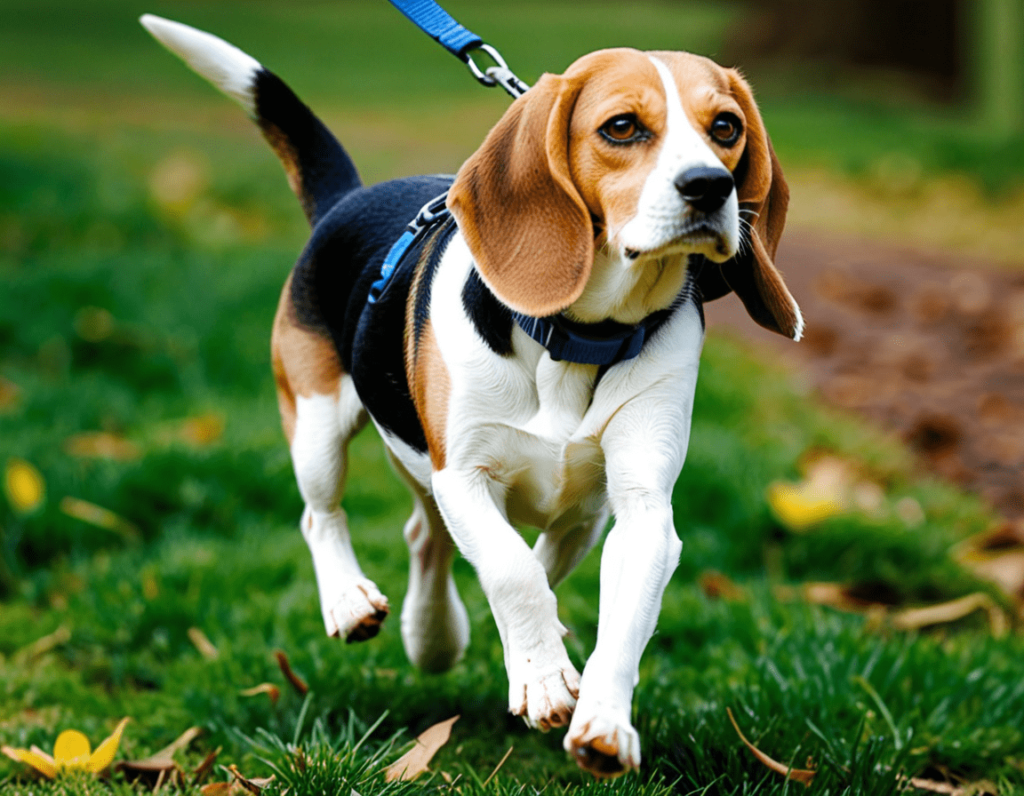
Beagles are adorable, social, and very curious. They’re small to medium-sized dogs with a nose that leads them everywhere (and sometimes gets them into trouble). They’re great family dogs and do well with children, but they have a mischievous streak. If you don’t mind the occasional “Where did the Beagle go?” moment, then a Beagle might be the perfect little adventurer for you.
Beagles are like that one friend who can’t help but stop and sniff every flower (or, in their case, every suspicious scent). With their adorable floppy ears and expressive brown eyes, beagles are not just cute—they’re born detectives, always on the trail of something interesting. Let’s dig into why these curious little hounds have stolen the hearts (and snacks) of dog lovers everywhere.
Fun Fact: Beagles were bred as hunting dogs, so they’ve got an impressive nose. If they smell something interesting, they’ll be off like a shot!
The Nose Knows Everything
Beagles were bred for hunting, which means their noses are practically GPS systems—only better. Their sense of smell is 44 times stronger than ours, so when a Beagle catches a whiff of something interesting, they transform into Sherlock Holmes on four paws.
Got a Beagle? Expect a lot of pit stops during walks. They’ll sniff every leaf, lamppost, and pebble like it holds the secrets of the universe. You might think they’re looking for something specific, but honestly, they’re just following their noses wherever it leads.
“Hey, human! I think I just found the trail of…wait, is that a squirrel?!”
The Classic Beagle Look
Beagles are compact, sturdy, and absolutely irresistible. Standing around 13-15 inches tall, they have short coats that come in classic tricolor (black, white, and tan) or lemon (white and light tan).
And those ears! Beagle ears aren’t just for show—they help funnel scents to their powerful noses. Plus, they’re perfect for flopping around as your Beagle races across the yard in hot pursuit of…well, nothing in particular.
Personality: Sweet, Smart, and a Little Stubborn
Beagles are the perfect mix of charm and mischief. They’re sweet-natured and love everyone they meet, but they’ve got a streak of independence that can be both endearing and a little exasperating.
Training a Beagle requires patience—and treats. Lots of treats. Their love for snacks is legendary, so use it to your advantage. Just be careful not to leave food unattended, or your Beagle will channel their inner Houdini to get it.
“What pizza? I didn’t see any pizza…oh, the crumbs on my face? Totally unrelated.”
Energy to Burn (and Burn, and Burn)
Beagles have energy levels that rival a toddler after a sugar rush. They love to run, play, and chase anything that moves. Regular exercise is a must, or they’ll entertain themselves by redecorating your house (read: chewing everything in sight).
A fenced yard is a great idea, but don’t underestimate a Beagle’s determination. If they catch a scent, they might try to dig or squeeze their way out for an impromptu adventure.
Social Butterflies of the Dog World
Beagles are pack animals, which means they thrive on companionship. Whether it’s you, your family, or other pets, beagles love being surrounded by their “pack.”
Left alone for too long, though, and they might serenade the neighbourhood with their famous howl. It’s like a beagle’s way of saying, “I’m lonely! Where are my people?”
Beagle Care Tips
Caring for a beagle is straightforward, but their unique quirks mean you’ll need to stay on your toes:
- Diet: They love food—sometimes too much. Keep portions controlled and snacks in moderation.
- Exercise: Daily walks and playtime are essential to keep their bodies and minds active.
- Training: Patience is key. Beagles are intelligent, but their independent streak can make training a challenge.
- Grooming: With their short coats, beagles are low-maintenance. A weekly brush will keep their fur looking great.
- Health: Watch for ear infections (those floppy ears trap moisture) and keep their weight in check.
The Beagle’s Backstory
Beagles have been around for centuries, originally bred in England as scent hounds for hunting small game like rabbits. Their incredible noses and tireless energy made them the perfect companions for hunters. Today, they’re more likely to be sniffing out treats in your kitchen than rabbits in the woods, but their hunting instincts are still strong.
Is a Beagle Right for You?
If you want a dog that’s curious, loving, and endlessly entertaining, a Beagle might be your perfect match. They’re great with kids, adaptable to various living situations, and bring a lot of joy (and laughs) to any household.
But be ready for their quirks: the sniffing, the howling, and the occasional food heist. Life with a Beagle is never boring—and that’s exactly why we love them.
Fun Facts About Beagles:
- They’re one of the most popular dog breeds in the U.S.
- A Beagle’s nose has around 220 million scent receptors. (Humans have about 5 million.)
- The breed inspired Snoopy, the world’s most famous cartoon dog.
- They’re often used as detection dogs at airports thanks to their incredible noses and friendly nature.
8. Dachshund : The Little Hotdog on a Mission 🌭
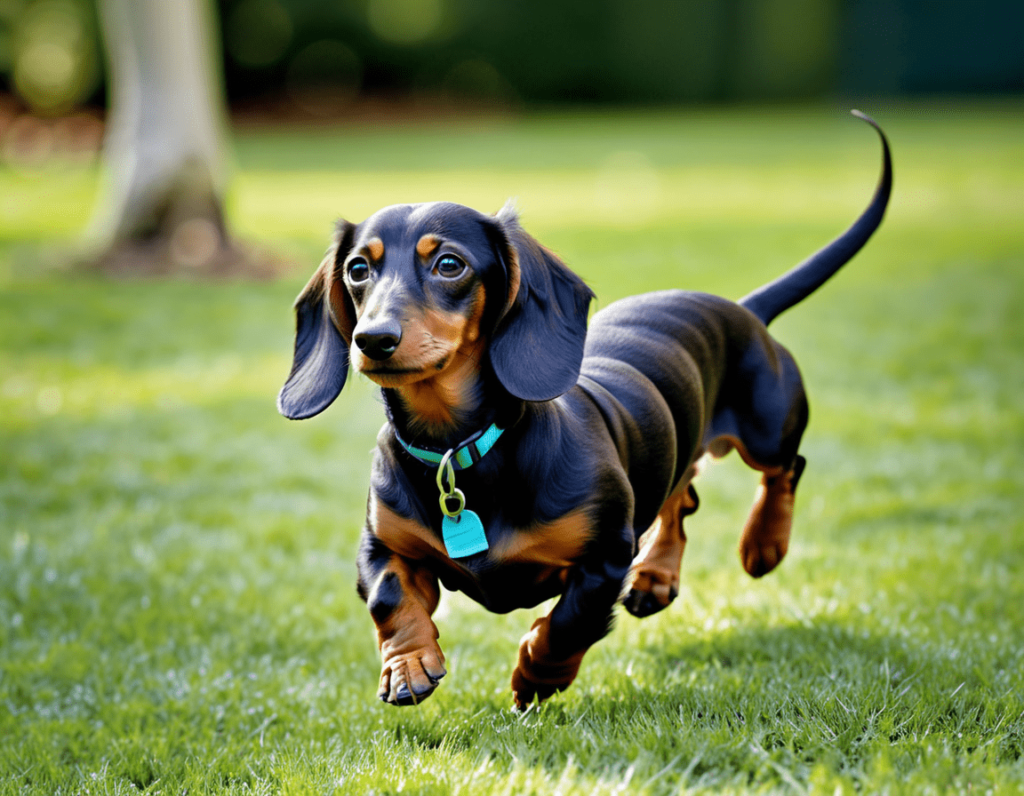
Dachshunds, also known as “wiener dogs,” are small with elongated bodies and big hearts. They’re known for their loyalty and determination—they’ll try to take on anything, even if it’s a lot bigger than them! If you want a funny, charming dog with a bit of spunk, the Dachshund is your breed. Just keep an eye on them, as they have a knack for getting into small spaces.
If there’s one dog that can claim the title of “small but mighty,” it’s the Dachshund. With their long bodies, short legs, and big personalities, Dachshunds have a way of waddling into your heart and setting up camp. Whether they’re chasing squirrels or giving you side-eye for finishing your snack without sharing, these adorable hotdogs are always on a mission.
Fun Fact: Dachshunds were originally bred to hunt badgers. Imagine this little guy going after something that fierce!
The Hotdog Look That Turns Heads
Dachshunds are iconic for their unique shape. Often called “wiener dogs,” their elongated bodies and stubby legs make them look like a hotdog with legs—only way cuter. They come in three coat types (smooth, long-haired, and wire-haired) and a variety of colors, from classic red to black and tan.
But don’t let their appearance fool you. These little sausages aren’t just for show—they were bred to hunt badgers (yes, badgers). Their low-slung frame is perfect for digging into burrows, and their tenacity? Well, let’s just say badgers didn’t stand a chance.
Big Personality in a Small Package
Dachshunds might be small, but their personalities are larger than life. They’re bold, curious, and always ready for an adventure. Need to fetch the mail? Your Dachshund is there. Dropped a piece of food? Don’t worry—they’ve got it covered.
They’re also hilariously stubborn. If a Dachshund doesn’t want to do something, good luck convincing them otherwise. Training requires patience, a sense of humor, and an arsenal of treats.
“Sit? I don’t think so, human. But I’ll roll over for a snack.”
Energy Meets Endurance
Despite their size, Dachshunds are surprisingly active. They love to play, dig, and bark—oh boy, do they love to bark. Whether it’s the neighbor’s cat or a leaf blowing across the yard, your Dachshund will let you know about it.
Regular exercise is a must to keep them happy and healthy. A daily walk or a game of fetch will do wonders for their energy levels (and maybe yours too).
A Loyal Companion (with a Dash of Sass)
Dachshunds are fiercely loyal to their families, often bonding closely with one person. They’re affectionate, protective, and surprisingly brave for their size. But don’t be surprised if your Dachshund also has a bit of a diva streak.
Want them to move off the couch? Be prepared for the dramatic sigh of a lifetime.
Caring for Your Little Hotdog
Dachshunds are relatively low-maintenance, but they do have some specific needs:
- Diet: These food-loving pups can easily gain weight, so portion control is key.
- Exercise: Short legs don’t mean low energy! Keep them active to prevent boredom.
- Training: Patience is your best friend. Positive reinforcement works wonders.
- Grooming: Smooth-coated Dachshunds need minimal grooming, but long-haired and wire-haired ones will need regular brushing.
- Back Health: Dachshunds are prone to back issues due to their long spines. Avoid letting them jump from high places and support their backs when picking them up.
A Little History: The Dachshund’s Origins
The Dachshund was bred in Germany over 300 years ago to hunt badgers and other burrowing animals. Their name literally translates to “badger dog” in German. While they’ve traded hunting grounds for cozy couches, their determination and courage remain the same.
Is a Dachshund Right for You?
Dachshunds are the perfect blend of cute, quirky, and clever. They’re great companions for families, singles, or anyone who appreciates a dog with a sense of humor.
However, they do come with some quirks. Their stubbornness can make training a challenge, and their love for digging might leave your yard looking like Swiss cheese. But with their charm and devotion, Dachshunds more than make up for their little “mischiefs.”
Fun Facts About Dachshunds
- They’re the 12th most popular dog breed in the U.S.
- They come in two sizes: standard and miniature.
- Dachshunds have been owned by celebrities like Picasso and Andy Warhol.
- The famous “Dachshund Dash” is a race dedicated to these speedy sausages.
9. Boxer : The Playful Athlete with a Heart of Gold 🥊
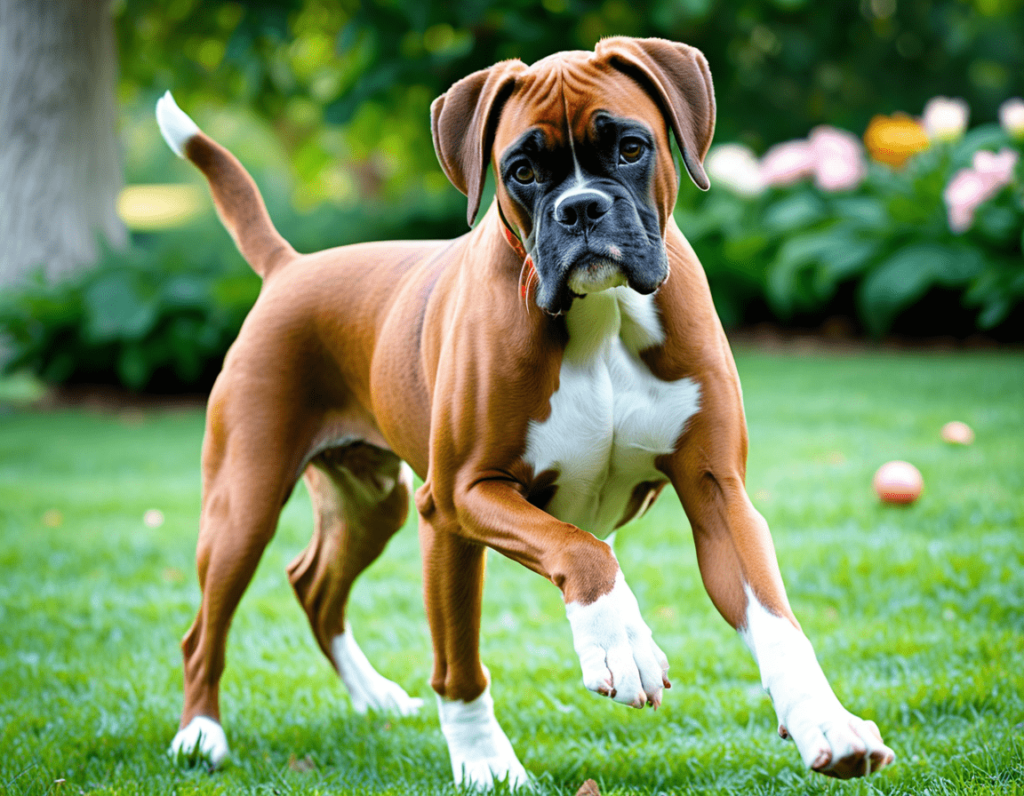
Boxers are the jocks of the dog world. With their muscular build, boundless energy, and love for play, these dogs are always ready for action. Known for being protective yet goofy, boxers are great with kids and have a cheerful nature that makes them easy to love. However, they can be a bit stubborn, so training is essential to keep this playful pup in line. If you’re looking for a high-energy, loyal friend, a Boxer could be your perfect match.
When it comes to dogs that can bounce between being a goofy clown and a fearless protector, the Boxer takes the gold medal. With their strong, athletic build and a heart as big as their love for belly rubs, Boxers are one of the most versatile and adored dog breeds out there. Whether they’re bounding around the yard or curling up on the couch after a long day of play, Boxers know how to balance fun and affection like pros.
Fun Fact: Boxers are known for their “kid-like” personality—don’t be surprised if they stay playful even as they age!
Looks That Mean Business (Until They Start Wiggling)
A Boxer’s striking appearance is hard to miss. With their muscular frame, square jaw, and deep, soulful eyes, they exude confidence and charm. But don’t be fooled by their tough exterior—Boxers are total softies at heart.
Their signature “wiggle butt” is a dead giveaway of their excitement. When a Boxer is happy (which is most of the time), they don’t just wag their tail—they wiggle their entire back end like they’ve got a motor running.
A Personality Full of Punch (and Love)
Boxers are the life of the party. They’re playful, energetic, and always ready for a game of fetch or a romp in the park. But their clownish antics come with a touch of grace—they’ve earned their title as “the athlete of the dog world” for a reason.
Their energy is matched only by their loyalty. Boxers are incredibly devoted to their families and are known for being excellent with kids. They’re patient, gentle, and protective, making them the ultimate family dog.
And let’s not forget their knack for mischief. Leave a sandwich unattended, and your Boxer might suddenly become a food critic.
The Boxer Workout Plan
Boxers are high-energy dogs, and they need plenty of exercise to stay happy and healthy. Regular walks, play sessions, and mental stimulation are essential. A bored Boxer can turn into a furry wrecking ball, so keeping them engaged is key.
Interactive toys, agility training, or even just a good game of tug-of-war can work wonders for their boundless energy. Just be prepared for the occasional “zoomies” when they decide to sprint around the house like their tail is on fire.
Caring for Your Boxer
Boxers are generally low-maintenance, but there are a few things to keep in mind:
- Diet: These active pups need a balanced diet to fuel their adventures. Avoid overfeeding, as they can easily gain weight.
- Grooming: Their short coat is easy to care for. A weekly brushing will keep them looking sharp.
- Health: Boxers are prone to certain health issues, including heart conditions and hip dysplasia. Regular vet check-ups are a must.
- Training: Start training early and use positive reinforcement. Boxers are intelligent but can be a little stubborn—treats are your best friend.
A Brief History: From Hunter to Family Favorite
The Boxer originated in Germany in the late 19th century and was bred from the now-extinct Bullenbeisser. Originally used for hunting and as guard dogs, Boxers quickly became known for their versatility and friendliness.
Today, they’re one of the most popular breeds worldwide, and it’s no surprise why. Their blend of strength, playfulness, and loyalty makes them a perfect companion for just about anyone.
Is a Boxer the Right Dog for You?
Boxers are ideal for active individuals or families who can keep up with their energy levels. They thrive on attention and love being involved in family activities. However, if you’re a couch potato, a Boxer might challenge your Netflix binges with their need for action.
That said, their affectionate nature and goofy personality make them worth every minute of effort.
Fun Facts About Boxers
- Boxers get their name from their habit of using their front paws in play, almost like a boxer in the ring.
- They’re known for their “kid-like” antics and can stay playful well into their senior years.
- A Boxer holds the record for the longest tongue on a dog (17 inches!).
- They’ve served in the military as messenger dogs and guard dogs.
10. Shih Tzu: The Regal Lap Dog with a Silly Side 👑
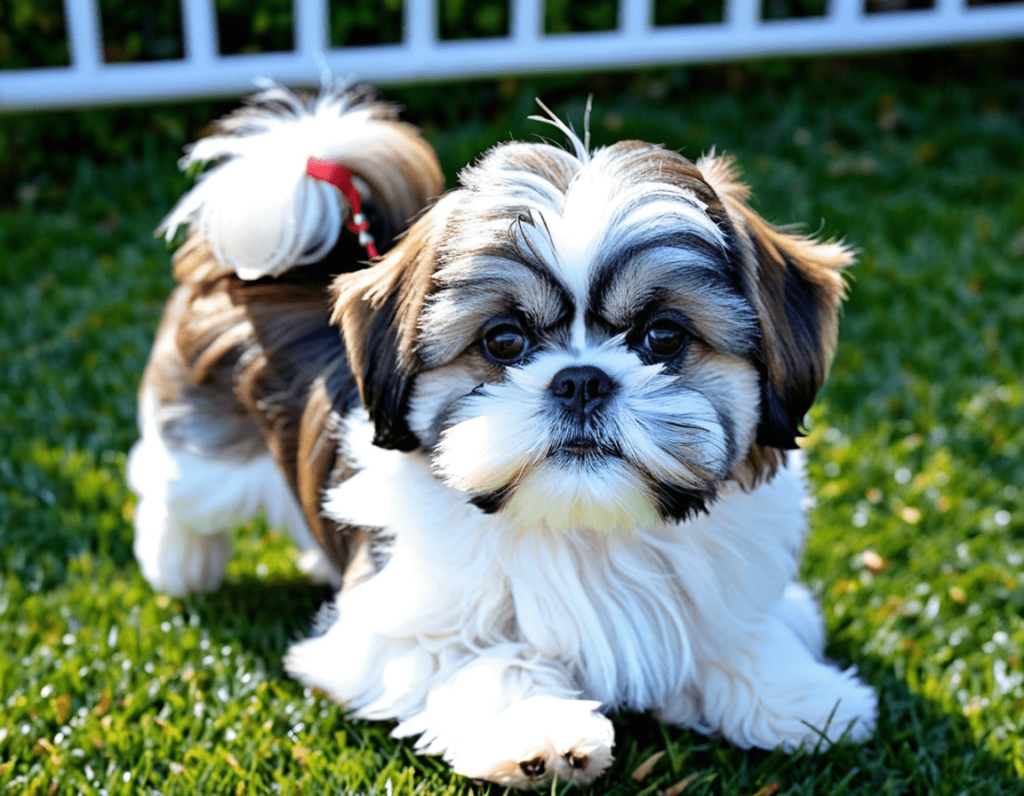
Shih Tzus may have an air of royalty, but they’re also sweet, loving companions with a touch of humor. These little fluff balls are great for apartment living and are known for their calm demeanour and affectionate nature. Shih Tzus thrive on human companionship and are perfect lap dogs. They’re also low-maintenance in the exercise department, making them ideal for those who enjoy a laid-back lifestyle. Just be prepared to brush that luxurious coat!
If there was ever a dog breed that could strut into a palace and make it their own, it’s the Shih Tzu. Known for their flowing locks and royal demeanor, these little companions are equal parts aristocrat and class clown. Don’t let their tiny size and regal looks fool you, though—they’re not above a little mischief, especially when a treat is involved.
Fun Fact: Shih Tzus were bred to look like little lions for ancient Chinese royalty. Don’t be surprised if they expect royal treatment!
What Makes a Shih Tzu So Special?
First, let’s address the obvious: Shih Tzus are absolutely adorable. With their long, luxurious coats, round faces, and those big, expressive eyes, they look like they just stepped out of a fairy tale. And their name, which means “lion dog” in Chinese, only adds to their majestic vibe.
But here’s the twist: for all their royal flair, Shih Tzus are goofy little furballs. One moment, they’ll be lounging on their favorite cushion like they’re posing for a royal portrait, and the next, they’re zipping around the house, chasing a rogue sock as if their life depends on it.
A Personality Fit for Royalty (and Comedy)
Shih Tzus are friendly, outgoing, and surprisingly independent for such a small breed. They love their humans but aren’t overly needy—think of them as the perfect balance between a cuddle bug and a curious explorer.
Their silly side comes out when you least expect it. They might tilt their head dramatically when you talk to them, as if they’re deeply pondering your words. (Spoiler: They’re probably just hoping for a snack.)
Shih Tzu Grooming: A Full-Time Job or a Hobby?
Let’s be real: owning a Shih Tzu comes with a grooming commitment. Their gorgeous, flowing coats don’t stay tangle-free on their own. Regular brushing is essential unless you prefer a shorter, easier-to-manage puppy cut.
Here’s a tip: Shih Tzus seem to know when you’re about to groom them, and some will pull out all the stops to avoid it. (Cue the dramatic flops onto the floor!) A little patience—and a lot of treats—will make the process smoother.
Life with a Shih Tzu: What to Expect
Despite their small size, Shih Tzus have big personalities. They’re confident and playful, making them great companions for families and singles alike. Here’s what you need to know:
- Exercise Needs: Shih Tzus don’t need marathon walks. A few short strolls and some indoor playtime will keep them happy and healthy.
- Training: They’re smart but can be a little stubborn. Keep training sessions fun and reward-based, and they’ll soon learn that following your commands earns them extra cuddles.
- Health: Shih Tzus can be prone to issues like breathing problems and eye infections due to their adorable flat faces. Regular vet check-ups are a must.
- Diet: They’ll happily eat anything that hits the floor, so make sure to keep their meals balanced and portioned properly.
A Brief History of the Shih Tzu
The Shih Tzu has a fascinating history that dates back over a thousand years. Originating in ancient China, they were bred to be the ultimate lap dogs for royalty. These little lions were pampered by emperors and palace staff alike.
Today, they’re just as pampered—but instead of palaces, they’re ruling over modern households, complete with fluffy beds, gourmet dog treats, and unlimited belly rubs.
Is a Shih Tzu Right for You?
If you’re looking for a low-maintenance, aloof dog, the Shih Tzu isn’t it. But if you want a loyal, playful, and slightly spoilt companion, they’re the perfect fit. They thrive on attention and are happiest when they’re part of the family action.
Keep in mind that they’re not big on alone time. Leave a Shih Tzu by themselves for too long, and you might return to a guilt-inducing pout or a shredded roll of toilet paper.
Fun Facts About Shih Tzus
- They were bred to warm the laps of Chinese royalty—basically, they’ve always been living the good life.
- Their long coats were originally meant to keep them warm in chilly palaces. (Who needs blankets when you have fur like that?)
- Shih Tzus are often called “chrysanthemum-faced dogs” because of how their facial hair grows in all directions.
- They’ve been known to snore louder than a human. Don’t say we didn’t warn you!
Final Thoughts
The Shih Tzu is more than just a pretty face. They’re funny, loving, and full of personality, making them one of the most popular toy breeds around. Whether they’re perched on your lap like a tiny emperor or darting across the room chasing an invisible enemy, they’ll keep you laughing and loved every single day.
Just be prepared to lose your spot on the couch—they’re called “lap dogs” for a reason, and they take their job very seriously! 🐾
11. Siberian Husky: The Cool, Athletic Adventurer ❄️

If you’ve got a love for adventure, a Siberian husky might be your ideal buddy. Known for their stunning blue eyes and wolf-like appearance, Huskies are high-energy, independent, and friendly with people. They’re great for active owners who enjoy running or hiking, but beware—they’re escape artists with a love for digging and exploring! If you’re ready to keep up with a dog that’s always ready for an expedition, the Husky might be calling your name.
When you think of Siberian huskies, one word likely comes to mind: majestic. These striking dogs, with their piercing blue eyes and wolf-like appearance, are every adventurer’s dream and every couch potato’s nightmare. Let’s dive into what makes Huskies so special and why they’re often referred to as the ultimate canine adventurers.
Fun Fact: Huskies can “talk” and howl, often in a way that sounds like they’re having a full conversation with you. Expect some interesting debates!
A Quick History Lesson
Originally bred by the Chukchi people of Siberia, these hard-working dogs were built to pull sleds over long distances in freezing temperatures. Fast forward to today, and while they’ve traded icy tundras for suburban backyards, they haven’t lost their energy—or their love for running like they’re auditioning for a doggy Olympics.
The Looks: A Show-Stopper in Fur
Let’s be honest, Huskies look like they’ve stepped out of a photoshoot for National Geographic. Their thick double coat, which comes in various colors like black, white, and red, is not just for show—it’s a functional masterpiece. But beware: that glorious coat sheds so much, you might end up with a second dog made entirely of fur.
Funny thought: If shedding were an Olympic sport, Huskies would have gold medals… and your home would have a carpet that wasn’t there yesterday.
Personality: The Life of the Party
Huskies are more than just a pretty face. They’re intelligent, friendly, and social butterflies. But don’t let their charming demeanour fool you—they also have a rebellious streak. Leaving a Husky unsupervised for even five minutes can result in a masterpiece of destruction, from chewed-up shoes to mysteriously missing cushions.
Pro tip: If you want a quiet, low-maintenance dog, a Husky might not be for you. But if you enjoy a daily dose of chaos and a partner for all your outdoor adventures, you’ve found your match.
Exercise: Not for the Faint of Heart
Think you can tire out a Husky with a casual walk around the block? Think again. These dogs need serious exercise, and no, a quick fetch session in the backyard won’t cut it. Hiking, running, or even bikejoring (yes, that’s a thing!) are ideal for keeping your Husky happy and healthy.
Remember, a tired Husky is a good Husky. A bored Husky? Well, let’s just say they might redecorate your living room.
Diet: Fuel for the Athlete
Given their athletic nature, Huskies thrive on a high-protein diet. But be warned—they can be picky eaters. You might find yourself playing dog food roulette, trying to figure out what their royal highness feels like eating today.
Keyword tip: Best dog food for Siberian Huskies is a hot search term for a reason. Owners everywhere are trying to crack the code.
Huskies and Kids: A Match Made in Heaven
If you have kids, huskies are like furry, four-legged nannies. They’re gentle, playful, and have enough energy to keep up with the most hyperactive toddlers. Just make sure to teach your kids that Huskies are not sled-pulling machines—unless you’re planning on recreating a scene from Snow Dogs in your backyard.
Fun Fact: The Great Escape Artists
One thing every Husky owner will tell you is that these dogs have a PhD in escape artistry. Whether it’s digging under fences, jumping over gates, or simply outsmarting you, Huskies are pros at finding freedom.
Funny line: If Houdini were a dog, he’d be a Siberian husky.
Final Thoughts: The Husky Life
Owning a Siberian husky is like signing up for a life full of adventure, laughter, and fur. Lots and lots of fur. They’re not for everyone, but if you’re ready for the challenge, these cool, athletic dogs will reward you with endless loyalty, love, and maybe a bit of mischief.
So, are you ready to welcome the coolest adventurer into your life? Just remember to buckle up—it’s going to be a wild, fluffy ride!
12. Border Collie: The Einstein of Dog Breeds 🧠
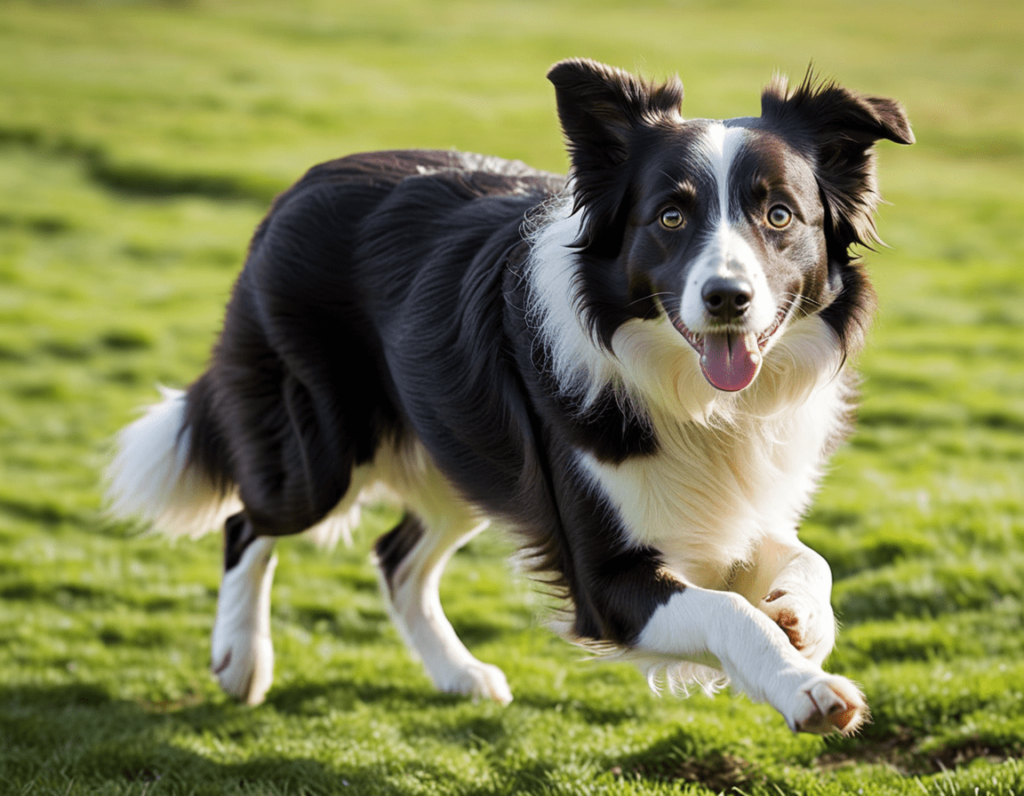
Border Collies are the brainiacs of the canine world. They’re often ranked as the smartest dog breed and are known for their incredible agility, problem-solving skills, and herding instincts. Border Collies need a lot of mental stimulation and physical activity to be happy, so they’re best suited for active owners. If you’re looking for a dog that’ll keep you on your toes (and possibly outsmart you), a Border Collie might be the ultimate match.
When it comes to brains, energy, and charm, the Border Collie stands at the top of the pack. Known as the “Einstein of Dogs,” this breed isn’t just smart—they’re scary smart. If you’ve ever felt like your dog might be outwitting you, you probably own a Border Collie.
But before you start handing over your Netflix password to your furry genius, let’s dive into why Border Collies are celebrated for their intellect, energy, and quirky personalities.
Fun Fact: Border Collies are so intelligent that they can learn over 1,000 words! Just try to keep up with them.
Why Are Border Collies So Smart?
Border Collies didn’t just wake up one day and decide to be brainiacs. Their intelligence comes from centuries of being bred to herd sheep. This job required quick problem-solving, independence, and the ability to understand complex commands. Basically, they were the CEOs of the sheep world—minus the corner office.
Not convinced? Studies show that Border Collies can learn a new command in less than five repetitions. Some have even learned to recognize over 1,000 words. Yes, they probably understand more vocabulary than your cousin who spends too much time on TikTok.
Personality: More Energy Than Your Morning Coffee
Picture this: you wake up on a lazy Sunday, ready to enjoy a slow morning. Your Border Collie, however, has already completed a mental list:
- Herd the squirrels in the backyard.
- Stare at the vacuum like it owes them money.
- Convince you it’s playtime by dropping a ball at your feet. Again. And again.
These dogs are not for couch potatoes. They thrive on activity, whether it’s agility training, fetch, or attempting to teach your Roomba how to herd dust bunnies. A bored Border Collie is a mischievous Border Collie. They’ll find their own “fun,” and trust me, you don’t want to find out what that means.
Training: Bring Your A-Game
Training a Border Collie is less about teaching them and more about keeping up with them. These dogs excel in obedience, agility, and pretty much any dog sport you can think of. However, their intelligence can also make them stubborn. Think of them as the dog version of a genius teenager who knows they’re smarter than you.
To keep them happy and engaged, focus on mental stimulation. Puzzle toys, advanced tricks, and interactive games work wonders. Bonus: this might give you a chance to catch your breath while they figure out the treat dispenser.
The Ideal Border Collie Parent
Let’s be honest: a Border Collie is not for everyone. If your idea of exercise is walking to the fridge, you might want to consider a less active breed. But if you’re ready to embrace their energy, intelligence, and occasional bouts of sass, a Border Collie can be an incredible companion.
They’re loyal, loving, and endlessly entertaining. Just be prepared to share your life with a dog that might secretly be plotting to take over the world—or at least the household Wi-Fi.
Fun Facts About Border Collies
- Record Holders: A Border Collie named Chaser is known as the smartest dog in the world, with a vocabulary of over 1,000 words.
- Speedy Athletes: They can run up to 30 mph—faster than you can say, “Wait, come back!”
- Eye Contact Pros: Their intense stare, known as “the eye,” helps them control livestock. Or, in your case, convince you to share your sandwich.
Conclusion: A Breed Like No Other
The Border Collie isn’t just a dog; they’re a lifestyle. Owning one means embracing their quirks, energy, and insatiable curiosity. Sure, they might outsmart you once in a while (okay, a lot), but they’ll also fill your days with laughter, love, and just a hint of chaos.
So, if you’re looking for a furry Einstein who doubles as your daily workout buddy, the Border Collie might just be your perfect match. Just don’t be surprised if they figure out how to unlock your phone next.
13. French Bulldog: The Compact Comedian 🤡
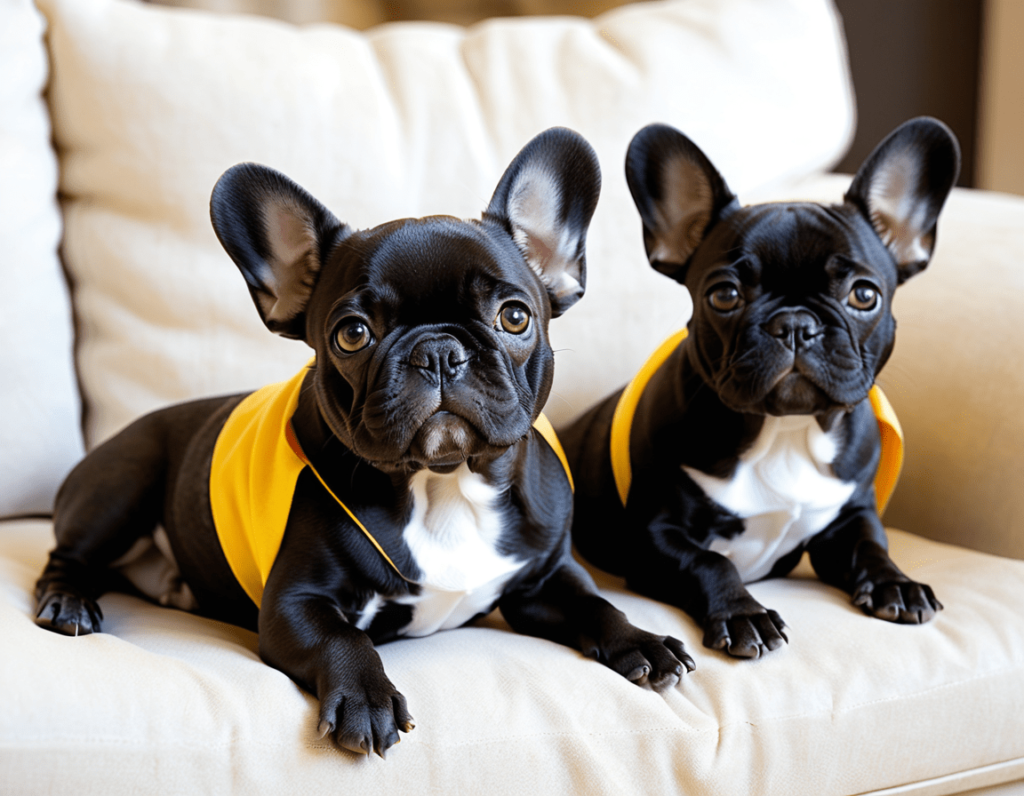
French Bulldogs, or “Frenchies,” are small dogs with big personalities. Known for their adorable, bat-like ears and charming personalities, French Bulldogs are low-energy and love lounging around. They make great apartment dogs and are perfect for people who want a laid-back, friendly companion. Frenchies are also natural comedians—prepare for some funny antics and cute snorts!
When it comes to dogs with big personalities in small packages, the French Bulldog takes the crown. Known for their bat-like ears, goofy antics, and an uncanny ability to make you laugh even on your worst days, these pint-sized pups are the ultimate four-legged comedians.
But behind that cute face lies a loyal, loving companion who knows how to turn heads and melt hearts. Let’s take a closer look at what makes the French Bulldog the rock star of the dog world.
Fun Fact: French Bulldogs can’t swim well due to their body shape, so maybe skip the pool days with this little buddy!
Why French Bulldogs Are Everyone’s Favorite Jokers
French Bulldogs, or “Frenchies,” are experts in the art of comedy. From their snorts and snores to their tendency to plop themselves into hilariously awkward positions, these dogs seem to be born entertainers.
Don’t be fooled by their small size—they’ve got personalities larger than life. Whether it’s stealing the spotlight during your Zoom call or “helping” you fold laundry by sitting on it, Frenchies know how to keep things interesting.
Personality: Small Dog, Big Attitude
French Bulldogs are like that friend who’s always the life of the party. They’re playful, curious, and surprisingly stubborn for their size. If you think you’re in charge, think again—your Frenchie will let you know who really runs the house.
But beneath the sass lies a heart of gold. Frenchies are incredibly affectionate and thrive on human companionship. They’ll follow you from room to room, not because they’re clingy, but because they’re convinced you can’t function without them. Spoiler: they might be right.
The Signature Frenchie Look
Let’s talk about those ears. French Bulldogs are instantly recognizable thanks to their iconic “bat ears.” Combine that with their squishy faces and a body that looks like it skipped leg day, and you’ve got a dog that’s equal parts adorable and hilarious.
Fun fact: Frenchies are so expressive that they can make you feel guilty without saying a word. One look from those big, soulful eyes, and suddenly you’re sharing your snacks—even if it’s the last piece of pizza.
Low Maintenance, High Entertainment
If you’re not a fan of endless grooming, you’re in luck. French Bulldogs have short coats that are easy to care for. Just a quick brush every now and then, and they’re good to go.
But what they lack in grooming needs, they make up for in entertainment. Frenchies love to play, but they’re also masters of relaxation. Don’t be surprised if you find your pup snoring on the couch while you’re working out. In their minds, they’re providing moral support.
Training a French Bulldog: Patience Required
Training a Frenchie is like negotiating with a toddler—they understand what you’re saying, but whether they listen is a different story. These dogs are smart but can be hilariously stubborn.
The key is positive reinforcement and a sense of humor. Frenchies respond well to treats and praise, so keep the snacks handy. And if all else fails, they’ll charm their way out of trouble with those puppy-dog eyes.
Who Should Own a French Bulldog?
French Bulldogs are perfect for anyone looking for a low-maintenance dog with a big personality. They’re great for apartment living, as they don’t need tons of exercise. A few short walks and some playtime are enough to keep them happy.
However, Frenchies don’t do well in extreme heat or cold, so you’ll need to keep them comfy indoors. Think of them as your little roommate who hogs the AC but makes up for it with endless entertainment.
Fun Facts About French Bulldogs
- They Don’t Bark Much: Frenchies are more about funny snorts, grunts, and snoring than barking.
- Hollywood Favorites: Celebrities like Lady Gaga and Hugh Jackman are proud Frenchie parents.
- World Travelers: French Bulldogs originated in England but became popular in France, earning their name.
Conclusion: The Compact Comedian You’ll Love
French Bulldogs are proof that good things come in small packages. They’re funny, affectionate, and endlessly entertaining. Whether you’re looking for a cuddle buddy, a playmate, or just a furry companion who knows how to make you smile, the Frenchie is the perfect choice.
Just be prepared to share your snacks—and your heart.
14. Rottweiler: The Loyal Guardian 🛡️
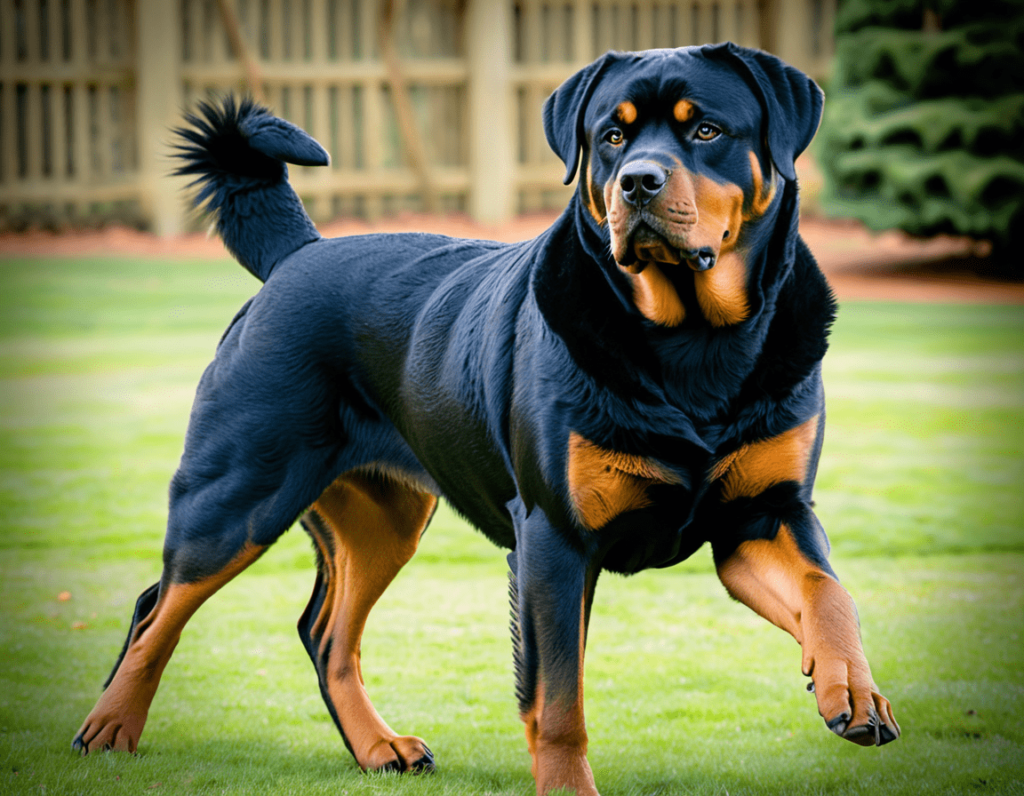
Rottweilers are known for their strength, loyalty, and protective instincts. Often misunderstood due to their muscular appearance, Rottweilers are actually affectionate, family-orientated dogs when raised with love and training. They’re calm, confident, and make excellent guard dogs who will fiercely protect their families. If you want a loyal, courageous companion who’ll watch over you, a Rottweiler might be just the fit.
Strong, fearless, and with a heart as big as their bark, the Rottweiler is a breed that leaves an unforgettable impression. Often misunderstood due to their muscular build and intense gaze, Rottweilers are actually lovable softies when it comes to their families. Beneath that tough exterior lies a loyal companion who will stand by your side no matter what.
Let’s take a closer look at what makes the Rottweiler the perfect combination of strength, smarts, and snuggles.
Fun Fact: Rottweilers were originally bred to herd cattle and pull carts, which is why they’re so strong!
The Origins of the Rottweiler: From Herds to Homes
Rottweilers trace their roots back to ancient Rome, where they worked as herding and guard dogs. Their job? Protecting livestock and hauling carts. Think of them as the OG Uber drivers—just with more fur and fewer app malfunctions.
Over time, they became known as loyal and dependable working dogs, earning their place in police forces, search and rescue teams, and, of course, our hearts.
Personality: A Tough Body with a Teddy Bear Heart
Yes, Rottweilers look like they could bench-press you, but don’t let their muscular appearance fool you. These dogs are incredibly loving and thrive on affection. They’re like the friend who acts tough but cries during every Disney movie.
Rotties are also known for their intelligence and protective nature. They’re the perfect watchdogs—not because they bark at everything (they don’t), but because they instinctively know when something’s off. If a Rottweiler trusts someone, you probably should too.
Training a Rottweiler: Brains Meet Brawn
Training a Rottweiler is like working with a gifted student—they’re smart, but they’ll test you just to see if they can. These dogs are highly trainable but need a confident and consistent owner. Positive reinforcement works wonders, and treats don’t hurt either (pro tip: Rottweilers will do just about anything for a snack).
Socialization is key with this breed. Exposing them to different people, pets, and situations early on helps ensure they grow into well-rounded adults. Think of it as teaching them that not every delivery person is a secret villain.
Rottweilers and Families: A Perfect Match
Rottweilers are fantastic family dogs. They’re incredibly patient with children and form deep bonds with their human pack. However, their size and strength mean they need supervision around small kids—accidental bowling pins aren’t unheard of when a Rottie gets excited.
They’re also surprisingly affectionate. Don’t be surprised if your 100-pound Rottweiler thinks they’re a lapdog. They’re just trying to prove that love knows no size limits.
Exercise: Keeping the Rottweiler Happy
Rottweilers are active dogs that need regular exercise to stay happy and healthy. A couple of good walks a day and some playtime will keep them in top shape. They love games like fetch, but they’re not above a good snooze on the couch afterward.
And yes, they snore. Loudly. It’s like living with a small bear, but hey, at least they’re cute while doing it.
Health and Care: Looking After Your Loyal Guardian
Like all breeds, Rottweilers come with their own set of health considerations. Common issues include hip dysplasia and heart conditions, so regular vet check-ups are a must.
Their short coat is low-maintenance, but they do shed. A quick brush once or twice a week will keep their coat shiny and your furniture slightly less furry.
Fun Facts About Rottweilers
- Nickname Alert: They’re often called “Rotties” by their fans.
- Versatile Workers: From herding cattle to pulling carts, Rottweilers have done it all.
- Gentle Giants: Despite their size, they’re known for being incredibly gentle with their families.
- Celeb Dogs: Rottweilers often make appearances in movies and TV shows as loyal protectors.
Is a Rottweiler Right for You?
If you’re looking for a dog that’s loyal, intelligent, and fiercely loving, the Rottweiler might be your perfect match. They’re best suited for active owners who can provide the structure, training, and affection they need.
Owning a Rottweiler is like having a personal bodyguard who also happens to be your best friend. They’ll protect you, make you laugh, and occasionally steal your spot on the couch.
15. Corgi: The Charming Royal Shortie 👑
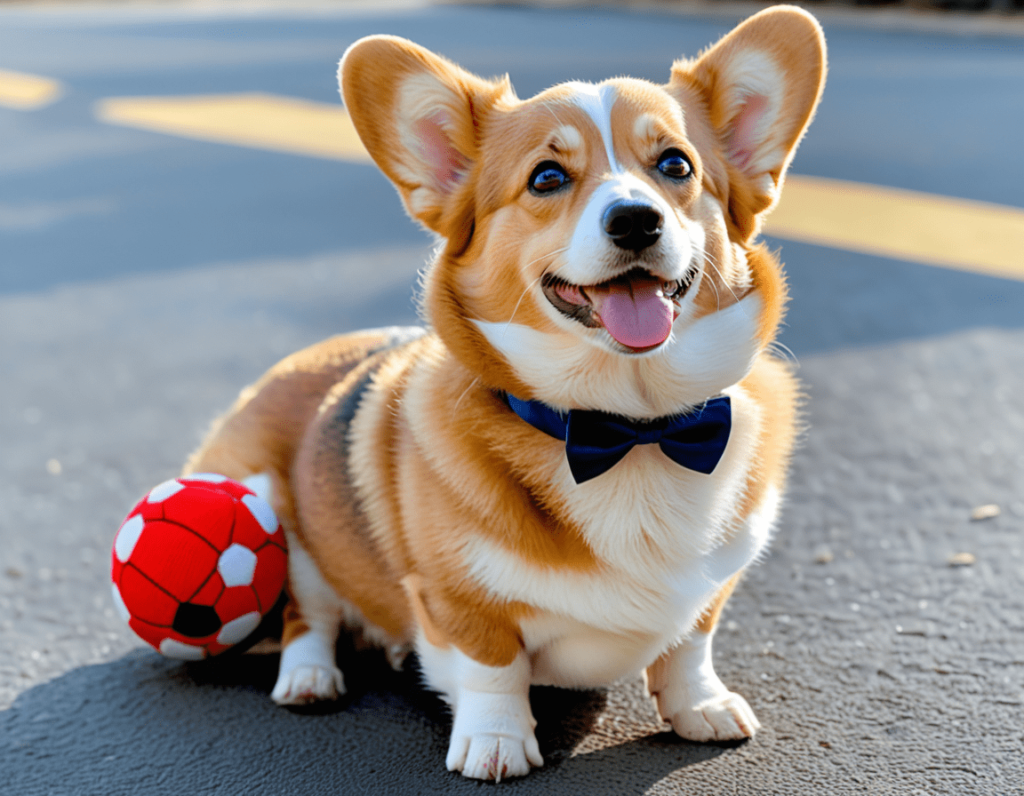
Corgis are small dogs with huge personalities. Known for their adorable short legs and fluffy butts, Corgis are playful, social, and very trainable. They’re energetic and enjoy a good romp, making them fun, lively companions. They have a “big dog” attitude in a small body, which is why they’re often seen herding anything that moves, including other pets and even their owners!
Few dog breeds can claim royal status, but the Corgi wears its crown effortlessly. Known for their stubby legs, big ears, and personalities larger than life, these little charmers have captured hearts worldwide. From the royal halls of Buckingham Palace to cosy apartments everywhere, the Corgi reigns supreme as a lovable and quirky companion.
But what makes this “royal shortie” so special? Let’s dive into the world of Corgis and find out why they’ve become everyone’s favourite pint-sized pup.
Fun Fact: Corgis are a favourite of the British royal family, especially Queen Elizabeth II. So, if you get one, you’re practically adopting royalty.
A Brief History of the Corgi: Born to Herd, Destined for Thrones
There are two types of Corgis: the Pembroke Welsh Corgi and the Cardigan Welsh Corgi. Both have ancient roots in Wales, where they were bred as herding dogs. Picture a tiny dog with the confidence of a much larger breed, rounding up cattle like a boss.
But their claim to fame? Queen Elizabeth II’s lifelong love for Pembroke Welsh Corgis. These dogs didn’t just herd livestock—they herded their way into royal history.
Corgi Personality: Big Dog Energy in a Small Package
Corgis may be short, but their personalities are anything but small. These dogs are playful, intelligent, and packed with sass. They’re the canine equivalent of that friend who’s always cracking jokes and somehow still gets all the attention.
They’re also incredibly affectionate. Whether they’re following you from room to room or demanding belly rubs with their signature “Corgi smile,” these pups know how to make you feel loved. Just don’t be surprised if they occasionally try to herd you—it’s in their DNA, after all.
The Signature Corgi Look
Let’s be honest: half the reason we love Corgis is how ridiculously cute they look. With their fluffy butts, perky ears, and expressive faces, Corgis could win a gold medal in the Dog Olympics for sheer adorableness.
And those stubby legs? Iconic. Watching a Corgi run is like seeing a cartoon come to life—it’s equal parts impressive and hilarious.
Training a Corgi: Smart but Stubborn
Corgis are brilliant, which is both a blessing and a challenge. They pick up new commands quickly, but they also have a stubborn streak. Training a Corgi is like negotiating with a toddler who knows they’re cute—and is not afraid to use it against you.
The key is consistency and positive reinforcement. Treats work wonders, but so does a sense of humor. If you can make training feel like a game, your Corgi will be the star of obedience class in no time.
Corgis and Families: A Perfect Match
Corgis are fantastic family dogs. They’re great with kids, playful with other pets, and loyal to their core. However, their herding instincts can sometimes kick in, leading to a few “ankle nibbles” if they think you’re moving too slowly.
They also love being part of the action. Whether it’s a game of fetch, a family walk, or simply lounging on the couch, your Corgi will be right there, soaking up the love.
Exercise: Keeping Your Corgi Happy
Despite their small size, Corgis are active dogs that need regular exercise to stay healthy and happy. A couple of walks a day, some playtime, and maybe a little agility training will do the trick.
And don’t forget mental stimulation! Corgis are thinkers, so puzzle toys and training games are great ways to keep their sharp minds occupied.
Corgi Health and Care Tips
Corgis are generally healthy dogs but can be prone to issues like hip dysplasia and obesity. With their love for snacks, portion control is a must—no matter how convincing those puppy-dog eyes are.
Their thick double coat requires regular brushing, especially during shedding season (which is basically all year). On the bright side, you’ll have enough fur to knit a sweater.
Fun Facts About Corgis
- Royal Roots: Queen Elizabeth II owned over 30 Pembroke Welsh Corgis during her lifetime.
- Built for Herding: Their low stature helps them avoid kicks from livestock. Smart, huh?
- Internet Stars: Corgis are social media darlings, with hashtags like #CorgiButt trending worldwide.
- Tail Tattle: Pembroke Welsh Corgis are often born without tails, while Cardigans have long, bushy ones.
Is a Corgi Right for You?
If you’re looking for a dog that’s playful, loving, and endlessly entertaining, a Corgi might be your perfect match. They’re ideal for families, singles, and anyone who doesn’t mind sharing their life (and furniture) with a pint-sized monarch.
Just remember: owning a Corgi means signing up for daily laughs, regular grooming, and a lifetime of unconditional love. And maybe a little herding practice on the side.
A Few Final Woofs on Choosing Your Dog Breed
There’s a dog out there for everyone. Whether you’re drawn to the goofy nature of a Golden Retriever, the calm elegance of a Shih Tzu, or the fierce loyalty of a Rottweiler, each dog brings something special. Owning a dog is a commitment, and understanding the breed’s characteristics can help you pick the one that’ll best fit into your life. Remember, every dog deserves love, patience, and a whole lot of belly rubs!
Choosing the Right Dog for You
Picking a dog isn’t just about what they look like; it’s about finding a pup whose personality fits your lifestyle. Do you want a snuggly Bulldog, a sporty Labrador, or a protective German Shepherd? Each breed has its own quirks, strengths, and sense of humour (yes, dogs have that!). So, whether you’re an outdoor enthusiast or a homebody, there’s a dog breed out there waiting to be your new best friend.
Dog Breeds and Their Unique Characteristics FAQs:
1. What Are the Best Dog Breeds for Families?
Answer: Breeds like Labrador Retrievers, Golden Retrievers, Beagles, and Bulldogs are known for being affectionate and gentle, making them excellent choices for families. These breeds are typically patient, playful, and great with kids, but it’s always important to socialise and train any dog to be around children safely.
2. Which Dog Breeds Are Known for Their Intelligence?
Answer: Some of the smartest dog breeds include Border Collies, Poodles, German Shepherds, and Golden Retrievers. These breeds tend to learn commands quickly, enjoy problem-solving, and are known for their ability to pick up on human emotions. Just beware, a smart dog can be a bit of a handful if they’re bored—think puzzles, interactive toys, and maybe even agility training!
3. What Are the Best Low-Shedding or Hypoallergenic Dog Breeds?
Answer: Poodles, Bichon Frises, Maltese, and Portuguese Water Dogs are popular hypoallergenic options. While no dog breed is 100% hypoallergenic, these breeds have hair rather than fur, which sheds less dander and is easier on allergy sufferers. Regular grooming is still a must, though!
4. Which Dog Breeds Are Good for Small Spaces or Apartment Living?
Answer: Smaller, lower-energy breeds like French Bulldogs, Cavalier King Charles Spaniels, Dachshunds, and Shih Tzus adapt well to apartment life. They don’t require as much space or intense exercise, though they still enjoy short, daily walks and playtime.
5. What Breeds Are Known for Their Loyalty?
Answer: Breeds like German Shepherds, Akitas, Labrador Retrievers, and Rottweilers are renowned for their loyalty and protective nature. They bond strongly with their families and are often very attentive and alert, making them great guard dogs and companions.
6. Which Dog Breeds Are the Most Independent?
Answer: If you’re looking for a more independent pup, consider breeds like the Shiba Inu, Afghan Hound, or Chow Chow. These breeds enjoy affection but don’t mind spending time alone. They tend to be confident, and some might even have a “cat-like” aloofness.
7. What Are the Most Popular Working Dog Breeds?
Answer: German Shepherds, Dobermans, Boxers, and Malamutes are among the top working breeds. These dogs are often used in roles that require strength, endurance, and intelligence, such as police or military work, search and rescue, or sledding. They’re incredibly focused and thrive with a job to do.
8. Which Breeds Are Good with Other Pets?
Answer: Breeds like Golden Retrievers, Beagles, and Collies are generally friendly and can get along well with other dogs, cats, and even small animals with proper introductions. However, every dog is unique, and socializing them early is key to fostering good relationships with other pets.
9. What Breeds Are Known for Being Vocal?
Answer: Breeds like Beagles, Huskies, and Dachshunds are known for their “talkative” tendencies. They may bark, howl, or even make funny vocalisations to communicate with their humans. While this can be entertaining, these breeds may not be the best fit for people who prefer a quieter home.
10. What Are the Most Energetic Dog Breeds?
Answer: If you’re an active person, breeds like Border Collies, Australian Shepherds, Jack Russell Terriers, and Siberian Huskies could be a perfect match. These dogs need plenty of exercise and mental stimulation to stay happy—think long hikes, agility courses, or fetch marathons.
11. Which dog breed has the longest life span?
Answer: Smaller breeds tend to live longer, with Chihuahuas, Dachshunds, and Toy Poodles often living well into their teens. While a dog’s lifespan can vary based on factors like genetics and care, smaller breeds generally have fewer health risks and longer lifespans than large breeds.
12. What Dog Breeds Are Best for First-Time Owners?
Answer: Breeds like Labradors, Cavalier King Charles Spaniels, and Shih Tzus are great for beginners because they’re typically friendly, adaptable, and easy to train. These breeds are forgiving, low-maintenance, and don’t require as much specialised training, making them ideal for new dog owners.
13. Which Breeds Are Known for Being “Velcro Dogs”?
Answer: “Velcro dogs” are dogs that love to stick close to their humans at all times. Breeds like Golden Retrievers, Labradors, Vizslas, and Havanese are famously affectionate and tend to follow their owners around the house. If you’re looking for a cuddly shadow, these breeds might be the perfect fit!
14. What Are Some Unique and Rare Dog Breeds?
Answer: If you’re interested in rare breeds, check out the Xoloitzcuintli (Mexican Hairless Dog), Lagotto Romagnolo, Azawakh, and Thai Ridgeback. These breeds are often lesser-known, with distinct appearances and temperaments. They’re unique in their own way and make for great conversation starters at the dog park!
15. What Breeds Are Best for Seniors or Less Active People?
Answer: Breeds like Bichon Frises, Pugs, Shih Tzus, and Cocker Spaniels are often ideal for seniors or less active owners. These dogs generally don’t need intense exercise and enjoy a more relaxed lifestyle. Short walks and cuddle sessions are enough to keep these breeds happy.
Finding the Right Breed for You
No matter the breed, each dog has its own personality and quirks. The best way to find your match is to consider your lifestyle, activity level, and what you’re looking for in a canine companion. Do you want a high-energy running buddy? A loyal guard dog? Or maybe a lap-loving cuddle bug? There’s a breed for every need, and at the end of the day, it’s about finding a dog that fits seamlessly into your life—and steals your heart.🐾

